DBA’s 114th President: Cheryl Camin Murray
BY J. COLLIN SPRING
The Dallas Bar Association welcomes its 2023 President, Cheryl Camin Murray. Murray will oversee the DBA as it celebrates its sesquicentennial anniversary, 150 years after its founding in 1873. Starting January 9, Murray will be a Partner at Katten Muchin Rosenman LLP, where her practice will focus on representing healthcare industry clients in transactional, regulatory and compliance matters. She will move back to private practice from her most recent role as the Chief Legal Officer at GI Alliance, the nation’s largest gastroenterology practice. In addition to her law degree from the University of Houston Law Center, she also holds a Master of Public Health from the University of Texas Health Science Center at Houston. Murray will be the 11th female President of the DBA and the 114th President overall.
In addition to her years of service to the legal field, Murray is also no stranger to community service, with a track record of bar involvement that stretches back to her early career. While she was a member of the Dallas Association of Young Lawyers (DAYL), she co-founded the DAYL Freedom Run—a treasured DAYL tradition now in its 23rd year. She was also a Founding Fellow of the DAYL Foundation, which raises funds to increase access to justice in the DFW metroplex. Her tireless work to improve the legal profession was highlighted by the DBA in both 2006 and 2021, when she received Presidential Citations in recognition of her service. Since becoming involved in the bar association, she has been involved with a plethora of committees, including the Public Forum Committee, which she co-founded.
Her involvement in the community does not stop at the bar association, however. Murray is the former Chair of the Dallas Friday Group, Dallas’ premiere public affairs organization that brings together members of all different professions to discuss current issues impacting the community. She also serves as Chair of the Board of Directors for the Southwest Transplant Alliance, a nonprofit organization focused on saving lives by facilitating organ and tissue donations across Texas. She has also been active with Act III, a mentoring organization for female attorneys. She has been featured in publications as diverse as D CEO Magazine, D Magazine, The Glass Hammer, The Texas Lawbook and more. Murray’s focus through the 2023 bar association term will be on re-energizing the DBA membership as the organization continues to transition out of the COVID-19 pandemic. The DBA’s 150th Anniversary will be celebrated in a number of ways throughout the year. Murray also plans to bring programming and resources focused on helping members
have more balance in their lives by working smarter and more efficiently.
Achieving that equilibrium is a specialty of Murray’s, who balances working at the highest levels of the healthcare field, being a leader in the community, and being a mother to her three 7-year-old triplets, Piper, Tess, and Connor, who she raises with her husband Blake. Recognized as 2020’s Working Mother of the Year by Working Mother magazine, Murray emphasizes that “a busy practice, coupled with a fulfilling volunteer and family life, are the keys to success.”
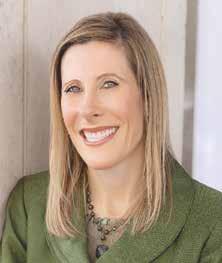
When asked about Murray, Mark Solomon, Managing Partner of Katten’s Dallas office gives a simple review: “She’s superb.” “Empathy,” Solomon says, “is the hallmark of a good leader—and it’s something that Cheryl has tons of. No one ever walks away from Cheryl not feeling heard.”
Solomon, who worked with Murray during her tenure at Katten, spoke at length about how much she brought to the organization, “not only as an excellent practitioner, but in terms of leadership skills. She has a way of driving the best outcomes among different groups of people.”
Immediate DBA Past President Krisi Kastl noted that: “Cheryl Murray is a leader that helps others become leaders.” When asked for comment, Kastl said that “[i]n 2006, Cheryl encouraged me to run for the DAYL Board of Directors and that run started my career in Bar leadership. Cheryl is not only diligent and driven in her role as an attorney, a bar leader, a wife, a mother, and a friend, she is quick with the quip and encourages an element of fun in life. While a lot has changed since our DAYL days, one thing that remains constant is Cheryl’s drive and dedication.”
Kastl appointed Murray this past year to lead the committee charged with approving the Dallas LGBT Bar Association’s application for a voting seat on the DBA Board. On Murray’s performance in that role, Kastl had this to say: “Cheryl’s attention to detail and her commitment and devotion, often very late at night after her workday and putting her children to bed, ensured that the LGBT Bar received their voting seat. There is no one better to lead us in 2023 to commemorate and celebrate the DBA’s 150th anniversary.”
Congratulations and best wishes to our incoming President. Please join us as we kick off the DBA’s 150th year on February 11, 2023 at Cheryl Camin Murray’s Inaugural. The event will be held at the Westin Galleria from 6:00 p.m. to midnight. Tickets are available at www.dallasbar.org. HN


J. Collin Spring is an Associate at Ryan Law Firm, PLLC. He may be contacted at Jay.Spring@ryanlawyers.com.
Hon. Royal Furgeson to Receive 2023 MLK Justice Award
 BY ASHLEY JONES WRIGHT
BY ASHLEY JONES WRIGHT
Whether providing pro bono services while in private practice, ensuring justice has been served as a judge, or shaping the lives of future lawyers as a law school dean, Judge Royal Furgeson’s passion for people and pursuit of justice make him an ideal recipient of the 2023 Martin Luther King, Jr. Justice Award, which recognizes area leaders whose service to the community embodies the example of Dr. King.
“His life and impact are beyond measure,” says Judge Furgeson. “While none of us can hope to accomplish what Dr. King accomplished, we can stand with him in his quest for justice.”
A native of Lubbock, Judge Furgeson earned a degree in English from Texas Tech University, where he was also a college athlete. After earning his law degree from the University of Texas School of Law, he served two years as an officer in U.S. Army, including one year in Vietnam. After completing his military service, he was a federal judicial law clerk to the Honorable Halbert O. Woodward. He then entered private practice in El Paso for 24 years before his appointment to the federal bench in 1994, where he served both the Western and Northern Districts of Texas before retiring in 2013.
After retiring as a federal judge, Judge Furgeson served as founding Dean of UNT Dallas College of Law. He recalls how “former Chancellor Lee Jackson presented the idea of starting a law school that was affordable and would open access to a legal education for underrepresented groups.” Judge Furgeson welcomed the idea of founding such a school because he “recognized that we are in a predominately white profession, and we needed to change that. So, founding the law school was a small opportunity to do just that. The practice is for everyone.” It is now recognized as one of the most diverse and affordable law schools in the country.
During his tenure, Judge Furgeson empowered the founding faculty to create community lawyering centers to meet the needs of those often left without access to affordable and effective legal representation, advocacy programs that developed award-winning student advocates, and community partnerships that resulted in students completing thousands of hours of community/pro bono service. His decision to pursue that small opportunity yielded big results for so many new lawyers in the Dallas community, including myself.
As a member of the inaugural class at UNT Dallas College of Law, I witnessed
firsthand Judge Furgeson’s dedication to ensuring the school’s success. He knew each one of us by name and never missed an opportunity to showcase us to the legal community. And when the ABA initially denied the school’s request for provisional accreditation, he could have quit at that moment— but did not. Instead, he and the founding faculty fought hard to show the ABA that UNT Dallas College of Law deserved another opportunity. To our benefit, they prevailed and gained provisional accreditation in 2017 and full accreditation in 2021 under the leadership of Dean Felicia Epps
Amanda Gadison, 2019 graduate of UNT Dallas College of Law and president of the law school’s alumni association, also attended the law school under Judge Furgeson’s leadership and said, “Judge Furgeson’s passion for the legal system, the community, and the students shined bright every single day. He helped create a law school that is representative of our society as a whole, which will have a positive, lasting effect on our legal community. He is incredibly deserving of the DBA’s MLK Justice Award.”
Judge Furgeson retired as Dean in 2018 but continues his commitment to the law school as Dean Emeritus. He assists with the school’s fundraising efforts and is working to develop a federal clerkship pipeline program for its students. He also continues to support the careers of UNT Dallas College of Law alums by advocating on their behalf and opening doors that help their careers flourish. His unwavering commitment to the law school and its students is only a continuation of the work he has done throughout his career.
Focus | Criminal Law/Government Law HEADNOTES Dallas Bar Association HEADNOTES 6 Toyota Supports Equal Access to Justice 12 Meet Your Sister Bar Presidents for 2023 17 The DBA is 150 Years Old! 20 How to Find Your Arrested Client in Dallas County 25 Diversion and Detection of Defendant Mental State Inside January 2023 |Volume 48 |Number 1 RENEW YOUR MEMBERSHIP DUES Don’t risk being dropped from the DBA membership! Renew TODAY in order to continue receiving all your member benefits including FREE online CLE programs and Committee Communications. Look for an email reminder with links to renew your Dues online. Thank you for your support of the Dallas Bar Association!
continued on page 26
Cheryl Camin Murray
Hon. Royal Furgeson
Calendar January Events
MONDAY, JANUARY 2
DBA Offices closed in observance of New Year’s holiday
TUESDAY, JANUARY 3
No
WEDNESDAY, JANUARY 4
Noon Employee Benefits & Executive Compensation Law Section
Topic Not Yet Available
Allied Bars Equality Committee

2:00 p.m. State Trial Court Research and Analytics “Tips & Best Practices by Trellis Law,” Nicole Clark. (MCLE 1.00)* Virtual only
4:00 p.m. LegalLine E-Clinic. Volunteers needed. Contact mmejia@dallasbar.org.
THURSDAY, JANUARY 5
Noon Construction Law Section
“Arbitration Advocacy,” Marty Coleman and Paulo Flore s. (MCLE 1.00)* In person only
Criminal Justice Committee. Virtual only
FRIDAY, JANUARY 6
3:30 p.m. Judicial Investitures
Hon. Maria Aceves, 192nd District Court; Hon. Veretta Frazier, 44th District Court; and Hon. Dianne Kathryn Jones, County Court at Law #4.
MONDAY, JANUARY 9
Noon Labor & Employment Law Section
“Avoiding & Enforcing Arbitration Agreements,” Scott McElhaney. (MCLE 1.00)*
Real Property Law Section “Case Law Update,” David Weatherbie. (MCLE 1.00)* In person only
Tax Law Section
“Criminal Tax Update,” David Gair. (MCLE 1.00)* In person only
Peer Assistance Committee Senior Lawyers Committee. In person only
TUESDAY, JANUARY 10
Noon
Immigration Law Section
Topic Not Yet Available
Mergers & Acquisitions Section
Topic Not Yet Available
Tort & Insurance Practice Section
“Ethical and Legal Issues in Helping Clients with Cyber Risk, Ransomware, and Privacy,” Peter Vogel. (MCLE 1.00, Ethics 0.50)* In person only
Courthouse/Library Committee. Virtual only
Home Project Committee. In person only Legal Ethics Committee. Virtual only
WEDNESDAY, JANUARY 11
Noon Bankruptcy & Commercial Law Section
“Recent Developments in Bankruptcy,” Rakhee Patel, Gerrit Pronske, and Hon. Michelle Larson. (MCLE 1.00)*
Public Forum Committee. Virtual only 4:00 p.m. LegalLine E-Clinic. Volunteers needed. Contact mmejia@dallasbar.org.
THURSDAY, JANUARY 12
Noon Alternative Dispute Resolution Section
“Case Law Update: Recent Cases in Alternative Dispute Resolutions,” Frances A. Smith. (MCLE 1.00)* Virtual only
CLE Committee. Virtual only
Publications Committee. Virtual only
FRIDAY, JANUARY 13
Noon Government Law Section
Topic Not Yet Available
Legal History Discussion Group
“The Lawyer’s Conscience: A History of American Lawyer Ethics,” Prof. Michael Ariens. (Ethics 1.00)* In person only
MONDAY, JANUARY 16
Noon Martin Luther King, Jr. Justice Award
Luncheon
Recipient: Hon. Royal Furgeson. Register online at www.dallasbar.org. In-person only at the Arts District Mansion.
Visit www.dallasbar.org for updates on Friday Clinics and other CLEs.
TUESDAY, JANUARY 17
Noon Antitrust & Trade Regulation Section
“Advertising and Consumer Protection Law: The Legal Landscape and Recent Developments,” Olivia Adendorff and Rachael Rezabek. (MCLE 1.00)* Virtual only
International Law Section
“How to Become a Chartered International Arbitrator and Recent Developments in International Arbitration,” Mercy McBrayer. (MCLE 1.00)*
Community Involvement Committee. Virtual only
Entertainment Committee. In person only
WEDNESDAY, JANUARY 18
Noon Wednesday Workshop
“When Someone You Know Gets Arrested,” Kevin B. Ross. (MCLE 1.00)*
Energy Law Section
“Building a Strategic Energy Reserve to Secure the Future Energy System,” Prof. James Coleman. (MCLE 1.00)* In person only
Health Law Section
“FCA Year in Review,” Neil Issar, Taryn McDonald, and Bill Morrison. (MCLE 1.00)* Virtual only
Solo & Small Firm Section “Ethics of Selling, Merging, or Winding Down your Practice,” Greg Sampson. (Ethics 1.00)*
Law in the School & Community Committee. Virtual only
Pro Bono Activities Committee
4:00 p.m. LegalLine E-Clinic. Volunteers needed. Contact mmejia@dallasbar.org.
THURSDAY, JANUARY 19
Noon Appellate Law Section “Introduction to the New Justices of the 5th Court of Appeals,” Chief Justice Robert Burns, Hon. Nancy Kennedy, and Hon. Maricela Moore. (MCLE 1.00)* In person only
Family Law Section
“Retirement and Stocks in Divorce: What You Need to Know,” Raechel Parolisi. (MCLE 1.00)*
4:00 p.m. DBA Board of Directors Meeting
FRIDAY, JANUARY 20
Noon Masters of Trial
“Four
Hon. Irma Ramirez. (MCLE 7.00). Register at dallasbar.org. In person only
MONDAY, JANUARY 23
Noon Science & Technology Law Section
Topic Not Yet Available
Golf Tournament Committee. In person only
TUESDAY, JANUARY 24
Noon Probate, Trusts & Estates Law Section
Topic Not Yet Available
WEDNESDAY, JANUARY 25
Noon Collaborative Law Section
Topic Not Yet Available
Corporate Counsel Section
“What’s Happening on the Hill – What to expect from Congress after the Mid-Term Elections,” Chris McCannell. (MCLE 1.00)*
Entertainment, Art & Sports Law Section
Topic Not Yet Available
4:00 p.m. LegalLine E-Clinic. Volunteers needed. Contact mmejia@dallasbar.org.
THURSDAY, JANUARY 26
Noon Criminal Law Section
Topic Not Yet Available
Environmental Law Section
Topic Not Yet Available
Intellectual Property Law Section
“Apportionment of Patent Damages,” Jeff Becker Bethany Salpietra. (MCLE 1.00)*
Minority Participation Committee. Virtual only DBA CSF Board Meeting
FRIDAY, JANUARY 27
3:00 p.m. Judicial Investitures
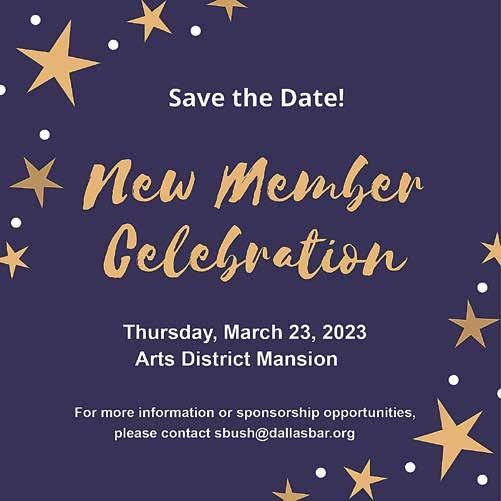
Hon. Maricela Breedlove and Hon. Nancy Kennedy, Fifth District Court of Appeals.
MONDAY, JANUARY 30
No DBA Events Scheduled
TUESDAY, JANUARY 31
Noon DBA Trailblazers Panel Hon. Jane Boyle, Hon. James Ho, Hon. Lena Levario, and moderator Courtney Sauer Collins. (MCLE 1.00)* In person only
DBA Events Scheduled
Business Litigation Section
Topic Not Yet Available
elite trial lawyers in Dallas will demonstrate how to try a civil case before a jury,” Quentin Brogdon, Laura Benitez Geisler, Paul Stafford, Victor Vital, Kacy Miller, and
2 Headnotes l Dallas Bar Association January 2023
WEDNESDAY WORKSHOPS JANUARY 18 Noon “When Someone You Know Gets Arrested,” Kevin B. Ross. (MCLE 1.00)* If special arrangements are required for a person with disabilities to attend a particular seminar, please contact Alicia Hernandez at (214) 220-7401 as soon as possible and no later than two business days before the seminar. All Continuing Legal Education Programs Co-Sponsored by the DALLAS BAR FOUNDATION. *For confirmation of State Bar of Texas MCLE approval, please call the DBA office at (214) 220-7447. **For information on the location of this month’s North Dallas Friday Clinic, contact yhinojos@dallasbar.org. Programs and meetings are presented Virtually, Hybrid, or In-Person. Check the DBA Online Calendar (www.dallasbar.org) for the most up-to-date information. Programs in green are Virtual Only programs. Thank you to all of our Equal Access to Justice Campaign sponsors who attended the Bachendorf’s Reception. And thank you to Bachendorf’s for their continued support of the EAJ Campaign. Thank You Donors!
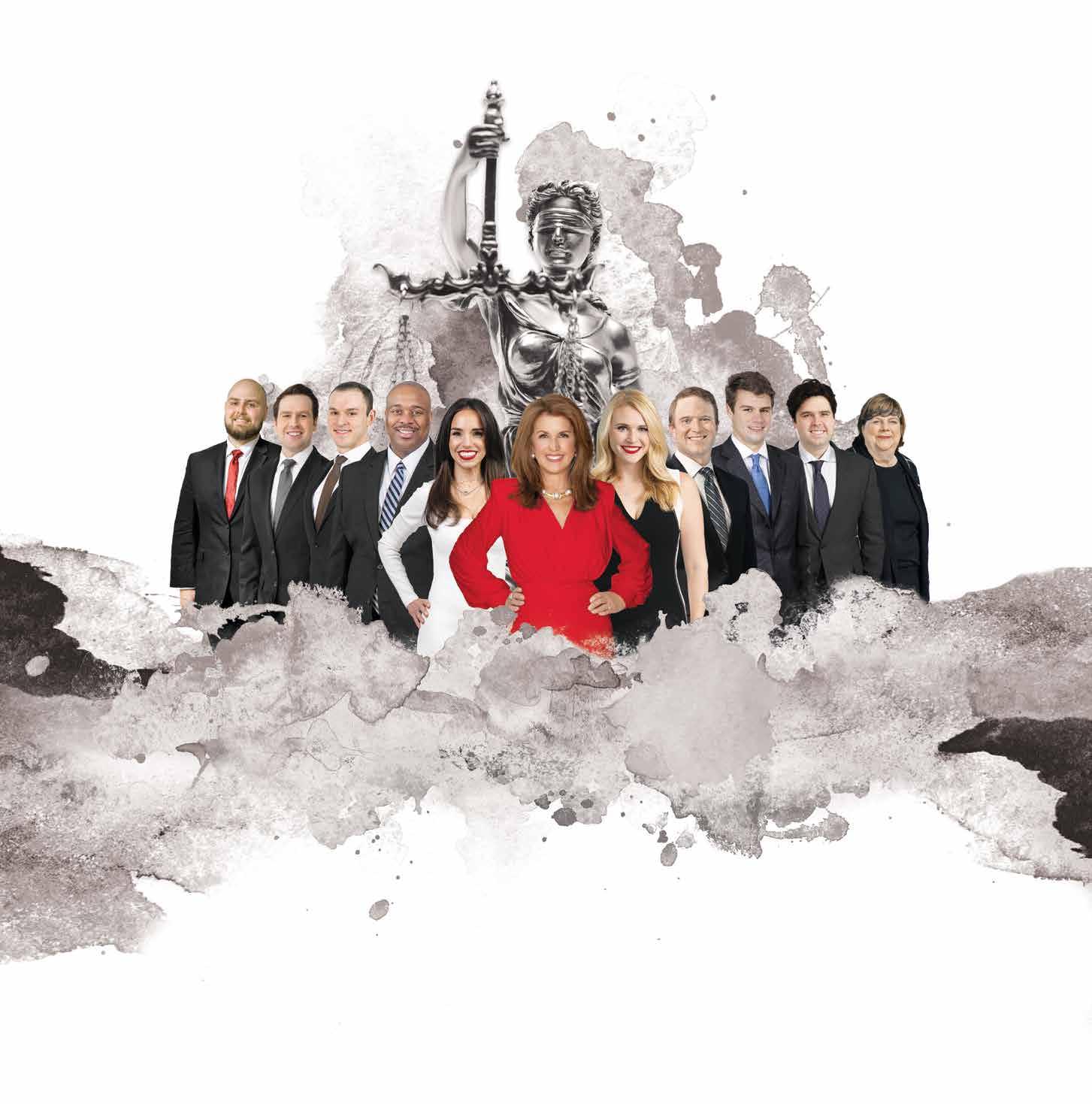








January 2023 Dallas Bar Association l Headnotes 3 CUSTODY DIVORCE PRENUPS Park Cities/Dallas | mcclure-lawgroup.com | 214.692.8200 GET JUSTICE. Park Cities/Dallas | mcclure-lawgroup.com | 214.692.8200 C M Y CM MY CY CMY HN_JAN2023-Justice_Final-INKS2.pdf 1 12/5/2022 8:55:24 PM
Thank You President Kastl
As we say goodbye to 2022 and charge forward into 2023, I would like to thank Krisi Kastl for her leadership as DBA President in 2022. Krisi mentioned that “90 percent of success is showing up,” and she was the epitome of showing up. Krisi was in full attendance at all Dallas Bar events and gave her devoted support to the numerous impactful DBA projects. In fact, I think she has an identical twin because I believe she was able to attend multiple DBA events at the same time.
President Kastl did an amazing job of empowering others to lead and acknowledging others, again and again, for their hard work and accomplishments. Krisi led selflessly and worked tirelessly to ensure the DBA had a successful year filled with outstanding programs and projects, and the DBA is stronger and well-positioned in 2023 thanks to her leadership. President Kastl, we appreciate you and the tremendous dedication of your time to the DBA!
Preview of Annual Events
One of the most precious things in life is time. We all have limited amounts of it, but the best way to fill it up is with positive and wonderful memories.
When we reflect on what brings us happiness, it is the wonderful memories of the things we have done and the interactions with people such as family, friends, clients, and work colleagues. I encourage each of you to do at least three things (but the more the better) with the Bar this year and see what memories you create. Here is a preview of the traditional DBA memorable events to come in 2023 at the Arts District Mansion:
Martin Luther King Jr. Luncheon, Golf Tournament, Law Day Luncheon, Mother’s Day Brunch, Pro Bono Law Clerks Luncheon, Minority Clerkship Luncheon, Bar None Performance, Bench Bar Conference, Equality Committee Privilege Walk, Pro Bono Awards Luncheon, DBA Awards Luncheon, Bachendorf’s Equal Access to Justice Reception, and the Holiday Party.
New Programs and Projects
In addition, we have a number of new and exciting programs this year. We plan to sprinkle throughout the year special family-oriented events including an Easter egg hunt and Halloween party at the Arts District Mansion. We also want to toast to those who have been elevated to partnership at their firms or a higher position in their in-house department. We will be hosting a leadership program and celebratory event in honor of these newly promoted lawyers.
We are looking at ways to engage the leadership of firms of all sizes, including large firms that may be based outside of Texas. Managing Partners, please keep an eye out for new opportunities on how we can inspire you and your lawyers to help make your firms and legal teams the best they can be.
Along those lines, as lawyers we are encouraged to work, and work, and then work some more in order to be successful in our careers. However, we need to make sure we take care of ourselves and take the time to make positive memories. If your physical or mental health fails, then the practice of law may not be sustainable, which can result in burn-out. We are focusing on initiatives that can help attorneys practice smarter, be more fulfilled, and have more of an equilibrium between their personal lives and career commitments. Please keep an eye out for the upcoming Professional Personal Parity Programs sponsored by the DBA.
Inauguration and 150th Anniversary Celebration
I will also throw in a plug for the DBA Inaugural Celebration on February 11 at 6:00 p.m. at the Westin Galleria. We are working on an incredible line up of entertainment, and it should be an evening you do not want to miss.
Very importantly, this year is the 150th anniversary of the Dallas Bar Association! Did you know the Dallas Bar Association was founded on October 7, 1873? In fact, we are planning an amazing celebration on October 7, 2023, at the Arts District Mansion. Please save the date. It is a once-in-a-lifetime opportunity to celebrate a 150th birthday! We already have an incredible 150th Anniversary Committee Co-Chaired by Sarah Rogers and Stephanie Gause Culpepper, who are organizing special activities, as well as this amazing birthday party—so stay tuned.

I am honored to be able to serve the DBA this year as President. I am energized to have the opportunity to spend my time with the talented lawyers in the Dallas community and learn how we can work together to enhance our profession and members’ careers.
Please let me know how we can help you. If you have any ideas, suggestions or want to get involved, please let me know. With your energy and talents, we can make 2023 a very memorable and unforgettable year!
Cheryl
Headnotes
Published by: DALLAS BAR ASSOCIATION
2101 Ross Avenue Dallas, Texas 75201 Phone: (214) 220-7400 Fax: (214) 220-7465 Website: www.dallasbar.org Established 1873

The DBA’s purpose is to serve and support the legal profession in Dallas and to promote good relations among lawyers, the judiciary, and the community.
OFFICERS
President: Cheryl Camin Murray
President-Elect: Bill Mateja
First Vice President: Vicki D. Blanton
Second Vice President: Jonathan Childers
Secretary-Treasurer: Kandace Walter Immediate Past President: Krisi Kastl
Directors: Katie Anderson, Alison Ashmore (President, Dallas Women Lawyers Association), Lauren Black, Callie Butcher (President, Dallas LGBT Bar Association), Rob Cañas, Stephanie G. Culpepper, Rocio Garcia Espinoza, Carla Verena Green (President, Dallas Hispanic Bar Association), Amber Hamilton Gregg (President, J.L. Turner Legal Association), Hon. Martin Hoffman, Nicole Muñoz Huschka (President, Dallas Association of Young Lawyers), Andy Jones, Jennifer King, Hon. Audrey Moorehead, Timothy Newman, Sarah Rogers (Vice Chair), Janet Landry Smith (President, Dallas Asian American Bar Association), and Drew Spaniol
Advisory Directors: Stephanie Almeter (PresidentElect, Dallas Women Lawyers Association), Trerod Hall (President-Elect, J.L. Turner Legal Association), Haleigh Jones (President-Elect, Dallas Association of Young Lawyers), Edward Loya Jr. (PresidentElect, Dallas Hispanic Bar Association), Kristine Cruz (President-Elect, Dallas Asian American Bar Association), and Elissa Wev (President-Elect, Dallas LGBT Bar Association)
Delegates, American Bar Association: Rhonda Hunter, Mark Sales
Directors, State Bar of Texas: Chad Baruch, Mary Scott, Paul Stafford, Robert Tobey, Aaron Tobin
HEADNOTES
Executive Director/Executive Editor: Alicia Hernandez Communications/Media Director & Headnotes Editor: Jessica D. Smith
In the News: Judi Smalling Display Advertising: Annette Planey, Jessica Smith
PUBLICATIONS COMMITTEE
Co-Chairs: Elisaveta (Leiza) Dolghih and Ted Huffman Co-Vice-Chairs: Gracen Daniel and John Koetter
DBA & DBF STAFF
Executive Director: Alicia Hernandez
Accounting Assistant: Jessie Smith
Communications/Media Director: Jessica D. Smith
Controller: Sherri Evans
Events Director: Rhonda Thornton
Executive Assistant: Elizabeth Hayden Executive Director, DBF: Elizabeth Philipp LRS Director: Biridiana Avina LRS Interviewer: Giovanna Alvarado
LRS Program Assistant: Marcela Mejia
Legal Education Coordinator: Viridiana Rodriguez
Director of Marketing: Mary Ellen Johnson

Membership Director: Shawna Bush Publications Coordinator: Judi Smalling Receptionist/CLE Coordinator: Araceli Rodriguez
Staff Assistant: Yedenia Hinojos
Texas High School Mock Trial & Law Related Education: Melissa Garcia
ATTORNEY PROGRAM
DALLAS VOLUNTEER
Director: Michelle Alden
Managing Attorney: Holly Griffin
Mentor Attorneys: Kristen Salas, Katherine Saldana
Paralegals: Whitney Breheny, Miriam Caporal, Tina Douglas, Carolyn Johnson, Suzanne Matthews, Andrew Musquiz, Alicia Perkins
Program Assistant: Laci Payton
Community Engagement Coordinator: Marísela Martin Secretary: Charnese Garrett
Copyright Dallas Bar Association 2023. All rights reserved. No reproduction of any portion of this publication is allowed without written permission from publisher.
Headnotes serves the membership of the DBA and, as such, editorial submissions from members are welcome. The Executive Editor, Editor, and Publications Committee reserve the right to select editorial content to be published. Please submit article text via e-mail to jsmith@dallasbar.org (Communications Director) at least 45 days in advance of publication. Feature articles should be no longer than 800 words.
DISCLAIMER: All legal content appearing in Headnotes is for informational and educational purposes and is not intended as legal advice. Opinions expressed in articles are not necessarily those of the Dallas Bar Association.
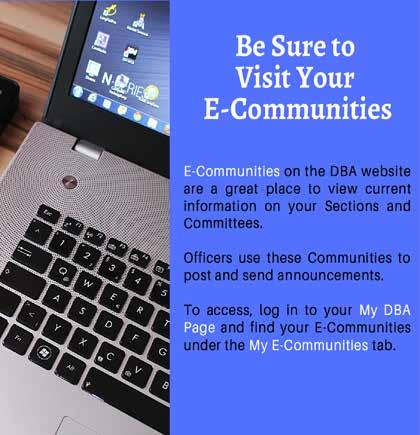
All advertising shall be placed in Dallas Bar Association Headnotes at the Dallas Bar Association’s sole discretion.
Headnotes (ISSN 1057-0144) is published monthly by the Dallas Bar Association, 2101 Ross Ave., Dallas, TX 75201. Non-member subscription rate is $30 per year. Single copy price is $2.50, including handling. Periodicals postage paid at Dallas, Texas 75260.
POSTMASTER: Send address changes to Headnotes, 2101 Ross Ave., Dallas, TX 75201.

4 Headnotes l Dallas Bar Association January 2023
President’s Column Let’s Make Some Memories
DOWNLOAD OUR APP TO STAY CONNECTED SCAN THE QR CODE BELOW You are Invited to the Judicial Investitures of: Hon. Maria Aceves, 192nd District Court Hon. Veretta Frazier, 44th District Court Hon. Dianne Kathryn Jones, County Court at Law #4 Friday, January 6, 3:30 p.m. at the Arts District Mansion
CHERYL CAMIN MURRAY



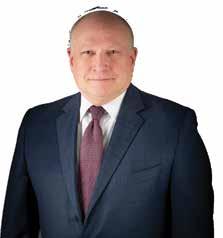

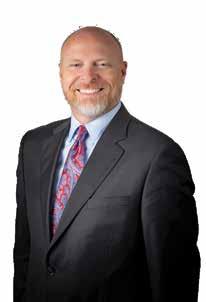


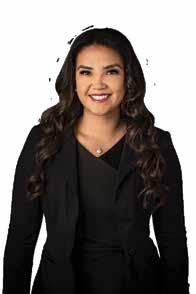

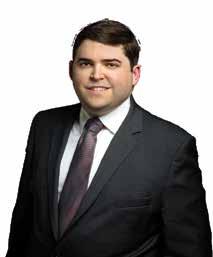




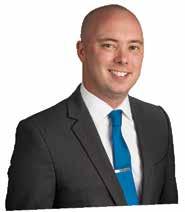

January 2023 Dallas Bar Association l Headnotes 5
Toyota Supports Equal Access to Justice
BY MICHELLE ALDEN
As the Equal Access to Justice Campaign continues into the new year, the Dallas Volunteer Attorney Program (DVAP) was fortunate to receive the generous support of Toyota with a $25,500 donation. This makes an impressive total of $68,624 donated by Toyota since they joined our North Texas community. In addition, Toyota North America maintains a robust pro bono program focused on various local initiatives, including DVAP’s Veterans Legal Clinic, estate planning clinics for local first responders, SMU Law School’s Child Advocacy Clinic, Dallas County’s annual Expunction Expo, assisting refugees fleeing gender-based persecution, and much more. Why do the accomplished attorneys of Toyota support equal access to justice?
“DVAP, funded by the Equal Access to Justice (EAJ) Campaign, provides invaluable civil legal services to those who cannot otherwise afford them. DVAP provides a marvelous forum in which to practice one of Toyota’s core values: respect for people. DVAP volunteers show that respect and compassion for others, and the services provided, lift us all together as a community. At Toyota, we invest in the communities where we work and live, and DVAP and EAJ give us the perfect opportunity to do that in DFW,” said Sandra Phillips Rogers, Senior Vice President, Corporate Resources, General Counsel, Chief Legal Officer and Chief Diversity Officer of Toyota Motor North America.
The justice gap in Dallas County remains daunting. In a country based on justice for all and access to our court system, over 25 percent of Dallas County residents live near the poverty level, and 42 percent have a slim hope of affording an attorney. With annual poverty incomes of $34,687 for a family of four, justice is a luxury for low and moderate-income families.
“I am privileged to have grown up in a family that can afford legal help if needed. I support EAJ because I feel like it is my duty as a lawyer to give back and help others who cannot afford a lawyer. The work DVAP and LANWT do in our communities is so important, and without these organizations, many would not have access to the civil justice system,” said Julie Ungerman, EAJ Campaign Co-Vice Chair and Managing Counsel, Toyota Legal One.
Last year was another unusual year of transition for our community. DVAP continued to conduct virtual legal clinics every Thursday and a virtual veteran’s clinic the first Friday of each month, along with periodic specialized wills, driver’s license restoration, and eviction clinics. In addition, DVAP has restarted several in-person clinics this year.
Recently, DVAP assisted “Laura” with her divorce. She sought custody of her two children, and her husband had a history of drug addiction. Laura became concerned that he was using drugs again and was worried about the children’s welfare. Sole practitioner Kate Pratt accepted the case pro bono and promptly filed a temporary restraining order. Kate facilitated an agreed
decree in which Laura was named sole managing conservator and her ex-husband was granted supervised visits with random drug tests to document his progress. Laura was greatly relieved to have the safety of her children protected.



Each case placed with a volunteer attorney by DVAP can lead to life-changing results--one more parent with access to their children, one more veteran with access to benefits earned, one more grandparent able to adopt a child whose parents are absent, or one more person who is able to finally secure employment due to an old criminal charge being expunged. Last year, DVAP placed 772 cases with volunteer attorneys for full representation. This number does not include all those who received advice and brief services through DVAP clinics and in DVAP’s pro se assisted divorce programs.
“As a lawyer, I believe in the law. And I support Equal Access to Justice because the justice gap—that is, the gap between legal needs and services available—is astoundingly wide for many Texans, especially those with lower incomes. The Campaign for Equal Access to Justice helps reduce that gap, helping eligible people in Dallas County—the elderly, veterans, families,
and more—access the civil legal system in so many critical areas, including family law, benefits, tax matters, probate protections, and others. Our justice system is the best in the world…but it is better when all Texans have equal access to justice,” said Ellen Farrell, EAJ Campaign Honorary Co-Chair and Group Vice President, Chief Legal, Compliance and Administrative Officer of Toyota Financial Services.
The commitment of Dallas attorneys and the DBA to the Equal Access to Justice Campaign is impressive. Since 1997, the DBA and Legal Aid have joined forces to raise money for the program, with Dallas lawyers donating over $19 million.
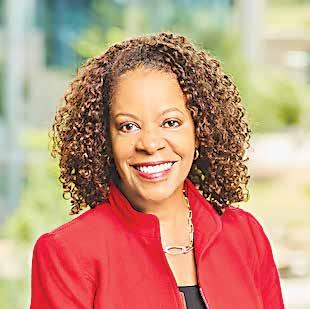


DVAP is a joint pro bono program of the DBA and Legal Aid of NorthWest Texas. The program is the only one of its kind in Texas and brings together the volunteer resources of a major metropolitan bar association with the legal aid expertise of the largest and oldest civil legal aid program in North Texas. For more information, or to donate, visit www.dallasvolunteer attorneyprogram.org.

6 Headnotes l Dallas Bar Association January 2023 Saturday, February 11, 2023 Westin Galleria Dallas Hotel Cocktails 6:30 P.M. Dinner 7:30 P.M. $250 per person; $2,500 table of ten Purchase tickets at www.dallasbar.org. Silent and Live Auctions, Dinner, Dancing, Casino, and more!
Camin
2023 DBA President ContaCt rthornton@dallasbar org for sponsorship opportunities BRIAN LAUTEN, P.C. HIGH-STAKES COMMERCIAL LITIGATION Kaylee Vanstory | Brian Lauten | Courtney Bowline 3811 Turtle Creek Blvd., Suite 1450, Dallas, Texas 75219 214.414.0996 | www.brianlauten.com
Cheryl
Murray
Michelle Alden is the Director of the Dallas Volunteer Attorney Program. She can be reached at aldenm@lanwt.org.
Ellen Farrell
Sandra Phillips Rogers
Julie Ungerman
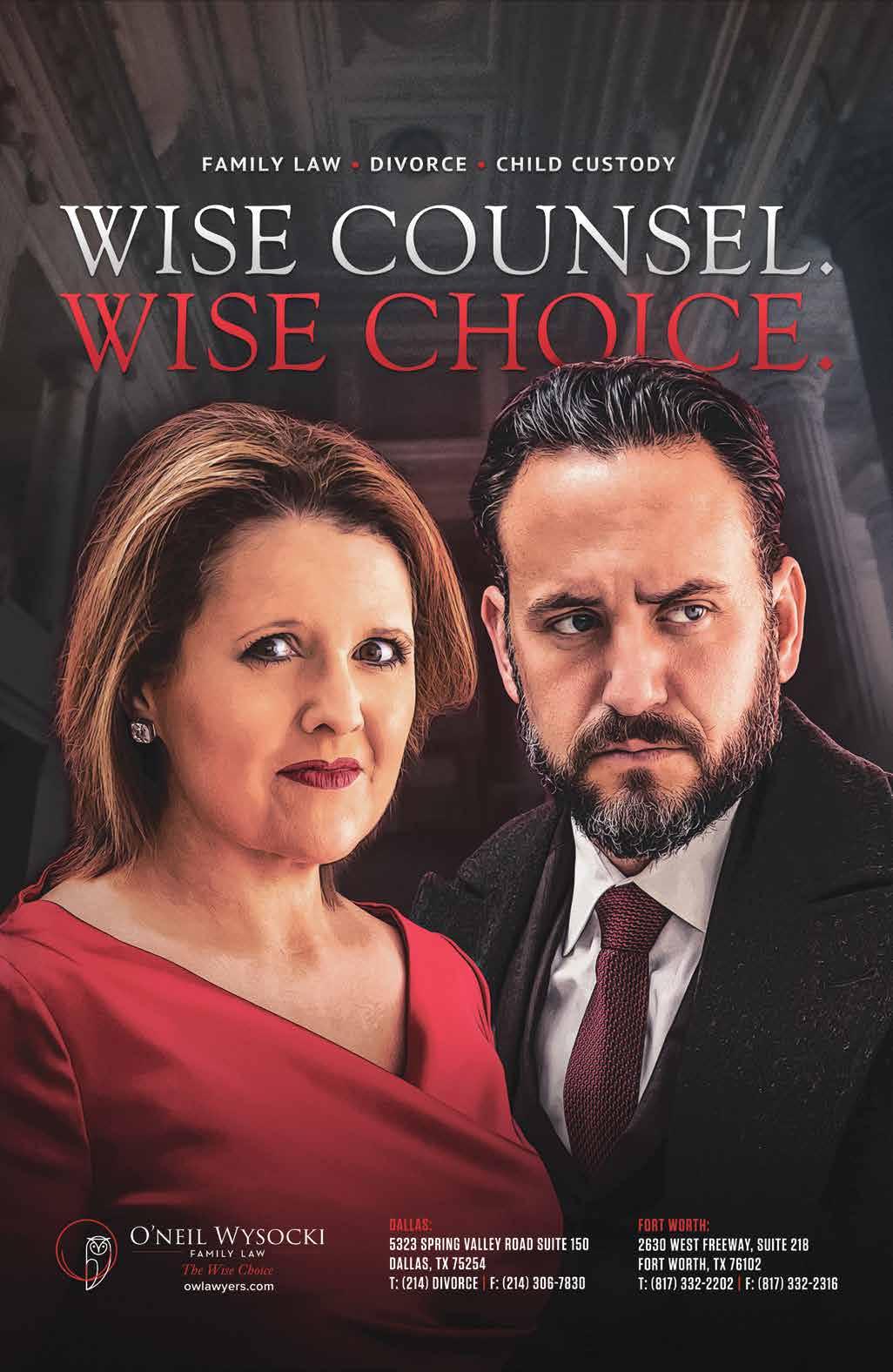
January 2023 Dallas Bar Association l Headnotes 7
BY JENNIFER BALIDO
Most people, even criminal law practitioners, do not know the ins and outs of expunctions or nondisclosures. The following is a very basic explanation of both tools available to clear your client’s (or your) criminal record.



Expunctions
An expunction is a civil proceeding that results in a qualifying individual’s arrest and criminal records being destroyed by the county or district clerk, District Attorney, Sheriff’s Office, police agency, Department of Public Safety, and other records holders served with an expunction order. When served with an expunction order, the agency or company must destroy any documents related to that arrest or forward the records to the District Clerk for destruction.
The statute determines who qualifies for an expunction; there is no “equitable” provision. There are various grounds for expunction. A person who is tried and acquitted of a criminal charge is entitled to an expunction. So is a person who was convicted and pardoned by the Governor or exonerated on appeal. If a person was convicted before 9/1/2021 for Unlawfully Carrying a Weapon under Texas Penal Code Section 46.02(a), they are entitled to an expunction, but not if that person was put on deferred adjudication—nonsensical, but true.
Cases in which a person completed a pre-trial diversion program and the charge was dismissed are eligible for expunction. In Dallas County, we have many pretrial diversion programs addressing a litany of issues and situations: Veterans (drug/mental health), DIVERT (drug), AIM (youthful offenders), SET (mental health), Second Chance (SCCIP for youthful offenders),

and STARR (prostitution).
Expunctions may also be granted in cases where the accused can prove his case was dismissed because of a mistake, false information, or an absence of probable cause to believe the person committed the offense. These cases can be immediately expunged regardless of whether the statute of limitations (SOL) has expired. Dismissals because of trial issues, such as insufficient evidence, inability to make a prima facie case, a court’s suppression of critical evidence, or a witness’s failure to appear do not qualify for expunctions until the SOL expires.

Finally, a person can have his record expunged if he was arrested but the police agency did not file the case, the District Attorney’s Office rejected the case, a grand jury no-billed the case, or an indictment was quashed; but only if the SOL has expired. If the SOL has not expired, the petitioner may obtain a “limited” expunction three years after a felony arrest, where the public records are destroyed, but the police agency or agencies and the District Attorney’s Office are permitted to keep their records.
Nondisclosures
When a person is placed on deferred adjudication, they are not eligible for an expunction, even if they successfully complete the probationary period. While they do not have a conviction, the case remains on their criminal record and may cause problems with employment or housing. Nondisclosure is a way to seal their deferred adjudications (and some “regular” probation cases), so that an ordinary background check will no longer reveal the case, while access by law enforcement and other certain state agencies remains.
A petition for nondisclosure must meet two basic requirements. First, the petitioner must not have been convicted or placed on deferred adjudication for any offense other than a fine-only traffic violation from the time the petitioner was sentenced to the time the sentence is complete and the applicable waiting period has run. Second, the petitioner must not have been previously convicted or placed on deferred adjudication for certain listed offenses, including: any offense requiring sex offender registration; aggravated kidnapping; murder; capital murder; human trafficking; continuous human trafficking; injury to a child, elderly, or disabled person; violation of certain protective orders; stalking; or any offense involving family violence. This rule applies to the offense the petitioner is attempting to have nondisclosed and applies to petitioner’s other offenses, if any.
After clearing that hurdle, the petitioner must determine whether the offense and its disposition qualify for nondisclosure. Generally, felony deferred adjudication cases are eligible for nondisclosure after five years. For misdemeanor deferred adjudication, nondisclosure is immediate, except for the following: kidnapping and unlawful restraint; indecent exposure and unlawful photography; assault, deadly conduct, and terroristic threat; bigamy, enticing a child, criminal non-support, and violation of a protective order; disorderly conduct, harassment, or animal cruelty; prostitution or sexting; unlawful carrying of a weapon; prohibited weapons; and engaging in organized criminal activity. Nondisclosure is prohibited for some of these, or the waiting period is longer. HN
8 Headnotes l Dallas Bar Association January 2023
Jennifer Balido, Appellate Division Chief, at the Dallas County District Attorney’s Office can be reached at jennifer.balido@dallascounty.org.
Expunction or Non-Disclosure of Criminal Records
Focus Criminal Law/Government Law Dallas Bar Association Trailblazers Series TRAILBLAZING JUDGES Hon. Jane J. Boyle, U.S. District Court, Northern District of Texas Hon. James C. Ho, U.S. Court of Appeals for the Fifth Circuit Hon. Lena Levario, Retired Senior Judge, Mediator and Arbitrator Courtney Sauer, Munsch Hardt Kopf & Harr, P.C., Moderator Tuesday, January 31 12:00 to 1:00 pm • MCLE: 1.00 at the Arts District Mansion TURLEY LAW CENTER Professional Friendly On-Site Staff 24-hour Cardkey Access Complimentary Valet Reserved Conference Room (No Charge) High-Speed Internet Deli Serving Breakfast & Lunch Full Service Salon & Spa ATM FedEx Drop Box Near Dart Station Satellite TV Connections Car Detail Service Furnished Executive Suites Conveniently located at N. Central Exp. & University Blvd. Competitive lease pricing. Is your office building “Dog Friendly?” OURS IS! TAKE A TOUR! Email us at Brendag@wturley.com or call 214-382-4118 When you cannot help a prospective client, remember... • Qualified panel of lawyers in all areas of practice and most areas of town. • $20 fee to the client for a 30-minute consultation with a lawyer. • All lawyers carry professional malpractice insurance. TH E DBA L A WYER REFERRAL S ER VICE! (214) 220-7444 | w www.dallasbar.org/lawyerreferralservice On December 8, the DBA hosted its last Living Legends program of 2022, which featured Veronica Moyé, of Dunn & Crutcher LLP, (left) interviewed by Gracen Daniel, of Griffith Barbee PLLC. Find all the Living Legends videos on our YouTube Channel at https://buff.ly/3FwEmN3. DBA Living Legends
in Texas
CONGRATULATIONS TO SARA BARNETT SELECTED TO THE
2022-2023
TEXAS RISING STARS LIST
Sara is known for her expertise in complex child custody and divorce litigation. A cre ative and skilled negotiator, Sara is equally skilled at settling cases as litigating them.

"My goal for each and every client is not only to facilitate a successful outcome in their family law matter, but to do so in a way that is focused on healing and dignity for my clients and their family."

January 2023 Dallas Bar Association l Headnotes 9
2919 Welborn Street Dallas TX 75219 AUBREY M. CONNATSER, PLLC Contact Sara at Sara@connatserfamilylaw.com or (214) 306-8441
BY PAUL K. STAFFORD
Our differences are the challenges and opportunities that eventually strengthen and ultimately unite our heterogenous society—with the precepts of equality, diversity, and inclusion existing well before our nation’s gradual evolution towards them, and before the legal system’s attempts to effectuate them through such promulgations as Brown , Loving , Grutter , and Obergefell
In response to this nation’s increasing diversity, and increased emphasis on equality and inclusion, our historically non-diverse legal profession is evolving as well. A quote from the Final Report of the Dallas Bar Association Diversity Summit (November, 2012) still rings true: “As the nation’s attitude has become more inclusive and progressive on diversity matters, so too has the attitude of the DBA in realizing the imperative of diversity and its implementation.” If bar associations are considered the conscience of the
legal community, the efforts of the Dallas Bar Association, in collaboration with other bar associations, are worth noting.

In that spirit, and in collaboration with the ‘Sister Bars’, in July 2020 (following the tragic death of George Floyd several weeks earlier), the Dallas Bar Association passed its Joint Resolution Reaffirming Commitment to Social & Racial Justice , and announced the formation of the Allied Dallas Bars Equality Task Force . Through the Joint Resolution , the DBA and the Sister Bars reaffirmed their respective and collective commitment to preserving Constitutional rights, promoting equality and social justice, and pursuing tangible progress towards a more diverse, equitable, and inclusive society. Subsequently, in October 2020, the Equality Task Force issued a Call to Action , through which the Equality Task Force sought to ensure progressive action within the legal profession, accountability, and collaboration among stakeholders towards social and
racial justice.
Towards the objections within the Joint Resolution and Call to Action , the Equality Task Force relied upon the DBA Bylaws, as well as previous promulgations of the DBA and the Sister Bars, including: the DBA’s Task Force on Opportunities for Minorities in the Profession – Long Range Plan for Inclusion (1990); the DBA’s Statement of Goals of Dallas Law Firms and Corporate Legal Departments (1994); the DBA’s Statement of Long Range Planning Goals ; and the DBA’s Final Reports from “A Bar For All” (2008), the “Vision 2020 Commission” (2010), and the “Diversity Summit” (2012).

Through the approval of the Call to Action in November 2020, the Equality Task Force was converted to the Allied Bars Standing Committee on Equality , with one of the objectives of the Equality Committee being to assess the status and efficacy of the Call to Action’s diversity efforts, as well as to promote and implement diverse, equitable, and inclusive programming.
Since its formation, the Equality Committee has promoted and implemented a variety of programming and CLE’s addressing racial and social justice issues, including pipeline projects to increase the pipeline of diverse students entering and graduating from law schools, a diversity book club, and collaborative programming initiatives with community and arts organizations. In its premier program commenced in 2021—The Privilege Walk—participants are presented with a series of scenarios and inquiries touching upon diversity, equality, and inclusion, and asked to physically take steps forward or backwards accordingly. At the conclusion of the walking exercise, the distribution of participants in relation to their physical proximity to each other is striking,
resulting in insightful and instructive discussions thereafter relevant to diversity, bias and prejudice, equality, inclusion, and belonging.
In 2022, the Equality Committee issued its DEI Challenge , which encouraged bar members to aspire to annually complete three hours of training in diversity equity and inclusion. Also in 2022, the Equality Committee issued its Diversity Toolkit for large firms, to articulate to the profession the need for diversity equity and inclusion in the profession (specifically, through recruitment, hiring, training, retention, and promotion of diverse attorneys), as well as to promote best practices for its realization.
In its continuing efforts, the Equality Committee plans to continue to sponsor periodic surveys studying diversity of attorneys working at major Dallas law firms.

The predicate to what is now the Equality Committee has been discussed in this article, but this is the first in what will be a series of articles on the subject of diversity, equality, and inclusion in 2023. In this year which marks the 150th Anniversary of the Dallas Bar Association, the efforts of the legal profession and its bar associations to promote and implement diversity, equality, and inclusion within its ranks continue. As stated in the Call to Action , it is the hope that these continuing efforts will “assist in facilitating that powerful intersection of deeds and words—for the betterment of our bar, our community, and our nation”. Onward.
HN
Paul K. Stafford, of Stafford Moore, PLLC, was 2002 President, J. L. Turner Legal Association; 2012 President, Dallas Bar Association; 2021 Chair, Dallas Allied Bars Standing Committee on Equality; and 2022 Dallas Director, State Bar of Texas Board of Directors. He can be reached at paul@staffordmoore.law.
10 Headnotes l Dallas Bar Association January 2023
Not Your Father’s Bar: Now Serving Diversity, Equity & Inclusion Column Diversity Spanish for Lawyers 2023 Spring Session: January 17 - March 22, 2023 Held online via Google Meet/Video conference. Learn how to read, write, and speak Spanish at an adult continuing education level, with emphasis on legal terminology at the intermediate and advanced levels. Register online at www.dallasbar.org/spanishforlawyers WWW.THOMASRONEYLLC.COM Personalinjury Wrongfultermination Intellectualproperty Commercialdamages/lostprofits Businessvaluations Whenyouneedanumber callournumber 817.733.6333 DAMAGES DALLAS•FORTWORTH•HOUSTON•ATLANTA Need Help? You’re Not Alone. More resources available online at www.dallasbar.org/content/peer-assistance-committee Texas Lawyers’ Assistance Program…………...(800) 343-8527 Alcoholics Anonymous…………………………...(214) 887-6699 Narcotics Anonymous…………………………….(972) 699-9306 Al Anon…………………………………………..…..(214) 363-0461 Mental Health Assoc…………………………….…(214) 828-4192 Crisis Hotline………………………………………..1-800-SUICIDE Suicide Crisis Ctr SMU.…………………………...(214) 828-1000 Metrocare Services………………………………...(214) 743-1200

January 2023 Dallas Bar Association l Headnotes 11 IP LITIGATION + COMMERCIAL LITIGATION
With a new year also comes the time to welcome the incoming presidents of our sister bar associations. The DBA looks forward to working with these leaders as they seek to advance the goals of their organizations and promote the interests of their members in 2023.


Serving as this year’s President of the Dallas Women Lawyers Association (DWLA) is Alison Ashmore. A member at Dykema, Ashmore practices in the areas of Commercial Litigation, Bankruptcy Litigation, and Employment Litigation Defense. She has been recognized by Law360 and Texas Super Lawyers as a Rising Star, and has been named a Best Lawyer in Dallas and a Best Lawyer Under 40 by D Magazine. She is a graduate of Baylor Law School, cum laude. She has been on the Board of DWLA since 2013, and was a member of the inaugural DBA We Lead Class of 2018.
Callie Butcher will serve as President of the Dallas LGBT Bar Association. She focuses her practice on complex patent litigation and patent licensing. A graduate of The University of Texas School of Law, Callie has served on the Dallas LGBT Bar Association Board since 2020. She has been recognized in the 2021 and 2022 editions of Best Lawyers as one of the “Ones to Watch in America” and “Women in The Law:
Ones to Watch” in intellectual property litigation, and was named a 2022 “Top Women Lawyer” by Texas Diversity Council.

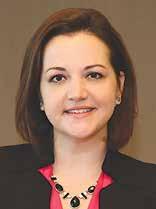

Carla Verena Green, an Associate in the Litigation Practice Group at Haynes and Boone, LLP, will serve as President of the Dallas Hispanic Bar Association (DHBA). She is a graduate of Texas A&M School of Law. Her practice focuses on the enforcement of rights and claims under insurance policies on behalf of corporate and public entity policyholders. In addition to her client work, Green is also heavily involved in giving back to the community. She recently worked with the Texas Civil Rights Project to represent parents separated from their children after seeking asylum at the U.S.-Mexico border.
Amber Hamilton Gregg will serve as President of the J.L. Turner Legal Association (JLTLA). A graduate of Texas A&M School of Law, Gregg is an Insurance Defense and Personal Injury
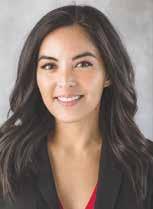
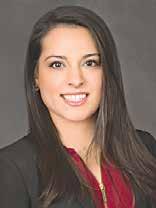
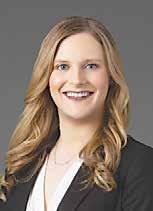




Trial Attorney at Suzanne I. Calvert & Associates - Employees of the State Farm Insurance Legal Department. She is a former Assistant Dallas County District Attorney where she prosecuted White Collar Crimes and she also clerked for the Honorable Sam A. Lindsay of the Northern District of Texas. Gregg has been awarded the Texas A&M School of Law’s Community Service Alumni impact award, been named as a CEO Mom of the Year by CEO Mom Magazine, and was a member of the 2020 State Bar of Texas Leadership Class as well as a graduate of the 2020 DBA We LEAD Class. Nicole Muñoz Huschka, a Litigation Associate at Figari + Davenport, LLP, and a graduate of Texas A&M University School of Law, will serve as President of the Dallas Association of Young Lawyers (DAYL). Muñoz Huschka received the DHBA La Estrella Award in 2016, which is presented to a rising young lawyer, and she received the DWLA Rising Raggio Award in 2019. Muñoz Huschka served as an editor for the Texas A&M Law Review, and clerked for Judge Eric V. Moyé, of the Dallas County 14th Civil District Court.
Janet Landry Smith will serve as President of the Dallas Asian American Bar Association (DAABA). Janet is an attorney at Southwest Airlines, where she provides advice and counsel on issues arising under various federal, state, and local labor and employment laws, interprets and advises on collective bargaining agreements, negotiates on behalf of the company with labor organizations, serves as lead counsel on labor arbitrations, and manages outside counsel on arbitration and litigation matters. A graduate of SMU Dedman School of Law and the University of Texas at Austin, Smith was named Best Lawyers Ones to Watch 20212023, and Best Under 40 by the Asian Pacific Interest Section of the State Bar of Texas. In addition to her role in DAABA, she is a member of the DBA and DAYL. Janet met her husband, Steve, while they were both attending SMU Law, and together they have a young daughter named Sterling. HN
12 Headnotes l Dallas Bar Association January 2023
Meet Your Sister Bar Presidents for 2023 STAFF REPORT RISK-TAKING CAN BE FUN... …BUT NOT WHEN IT’S A MALPRACTICE CLAIM. Real Estate Litigation Claim* • Lawyer sued for error in service of process • Damages of up to $1,000,000 alleged • TLIE settled claim for $2,500 INSURED BY TLIE IF NOT INSURED Total out-of-pocket = $1,000 (deductible) Defense costs $35,000 Settlement + $2,500 Total out-of-pocket = $37,500 * Based on actual claim handled by TLIE. FIND OUT MORE: TLIE.ORG or (512) 480-9074 © 2022 LEG, Inc. d/b/a West Academic. 102220 t11 West, West Academic Publishing, and West Academic are trademarks of West Publishing Corporation, used under license. A Short & Happy Guide to Mediation is for lawyers who want better results from mediation, clients curious about an upcoming mediation, mediators who want to become more effective, and students who want to explore dispute resolution as a career. Available to purchase from amazon.com. New Edition from Dallas Author Will Pryor! www.willpryor.com ISBN 9781636592657 Mat.# 42903916 PRYOR MEDIATION 2ND SHG 5/23/22 — WME by Will Pryor Mediation An exceedingly effective guide to Mediation that makes a difficult subject accessible and easy to remember! Second Edition A SHORT & HAPPY GUIDE TO MEDIATION A Short & Happy Guide to Mediation is for lawyers who want better results from to become more effective, and students who want to explore dispute resolution as career. What disputes should be mediated? Who gets to be the mediator and how do you choose the right one? How can preparation for a mediation lead to more successful result? What are some things about the practice of mediation these days that we can improve? A Short & Happy Guide to Mediation addresses these and many other intriguing questions. Will Pryor has mediated over 4,500 disputes. A graduate of Yale University and Harvard Law School, Will has earned national reputation as creative and of baseball, teach himself to cook, and raise two fabulous daughters. A former courtroom lawyer, trial court judge, and First Assistant Attorney General of the State of Texas, Will taught Alternative Dispute Resolution (“ADR”) for almost two and author on a wide variety of dispute resolution topics. More information about Will and his practice can be found at www.willpryor.com. became necessary and to the surprise of many (including this author) they often worked. What did we learn? How can you take advantage of this transition in future disputes? Answers to these and other questions are in this Second short happy guide series Short Happy Guide MEDIATION PRYOR Second Edition IMPROVING THE MEDIATION PROCESS NEW EDITION!
Alison Ashmore
Amber Hamilton
Gregg
Callie
Butcher
Nicole Muñoz Huschka
Carla Verena Green
www.dallasbar.org/careercenter Here are some simple tips on how to diversify yourself from the others: 1. Add your objective in the title 2. Add your LinkedIn, Twitter and Facebook links so employers can see your personality 3. Add more accomplishments to show your strengths Thousands of top employers could be looking at your resume right now. The first way to stand out from the other candidates on the DBA Career Center is to update your resume to show the employers why you’re the one they’re looking for. Get noticed! Update your resume on the DBA Career Center today! FREE MCLE J O I N O R R E N E W N O W A T W W W D A L L A S B A R O R G One of the many Member Benefits that the DBA offers is more than 400 CLE courses each year, most of which are offered at no charge FREE MCLE J O I N O R R E N E W N O W A T W W W D A L L A S B A R O R G One of the many Member Benefits that the DBA offers is more than 400 CLE courses each year, most of which are offered at no charge
Janet Landry Smith

January 2023 Dallas Bar Association l Headnotes 13 IN PERSONAL INJURY, BUILDING A FIRSTRATE TEAM IS NO ACCIDENT. PAYNE MITCHELL RAMSEY IS PLEASED TO ANNOUNCE THE RECENT ADDITION OF ATTORNEY MAC PHELPS. With Mac’s arrival, our team continues to grow — in size, tenacity, and depth of experience. For unparalleled commitment and excellence in personal injury advocacy, call Payne Mitchell Ramsey. To make a referral or arrange a consultation, contact us today. 214.252.1888 • paynemitchell.com AVIATION CRASHES • PRODUCT DEFECTS • NEGLIGENCE MEDICAL MALPRACTICE • VEHICLE COLLISIONS PMR NewHireAd2023_Headnotes_120122.indd 1 11/29/22 3:07 PM
BY PETER ROSKAM, MICHAEL BORDEN, AND ROBERT UHL
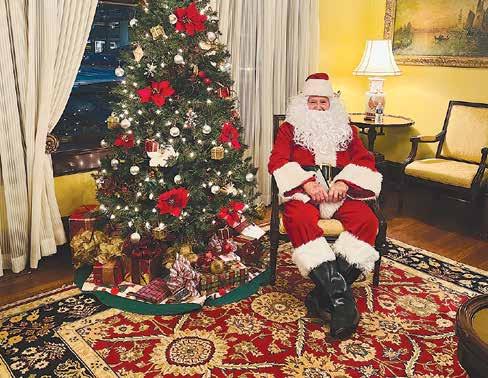

A congressional investigation that targets you or your company can have serious consequences. As the target of an inquiry—even as the target of a seemingly low-profile or informal information request—you cannot underestimate the potential legal, political, or public relations risks. These investigations can have devastating implications for you or your company: other investigations by law enforcement or executive branch agencies can be initiated, civil lawsuits can be filed or threatened, your other business and regulatory interests involving the government can be altered, and, of course, your public image can be damaged.
Congress can investigate almost anything. An implied constitutional power, congressional oversight has been firmly established as an essential part of Congress’s legislative responsibilities and presents challenges not found in the more familiar realms of civil litigation and regulatory investigations. Often, tactics that are effective in litigation and regulatory investigations do not work in a congressional investigation. Though congressional investigations may seem to involve familiar legal processes, they lack typical due process protections and are deeply infused with politics.
As a result, designing an effective strategy to manage a congressional investigation requires more than just a knowledge of traditional litigation tactics; it demands an understanding of Congress’s idiosyncrasies, its powers
and limitations, and its key players and their motivations. Understanding the way Congress works (both formally and informally) is critical to defending your interests and still responding appropriately to Congress’s demands. Counsel who are experienced in the legislative process can help guide you through the process based on their understanding of (i) the likelihood that subpoenas will be issued or successfully enforced, (ii) the external deadlines or timeframes under which the investigating committees operate, (iii) committee resource constraints, (iv) the views and dispositions of individual committee members, and (v) the political balance in Congress.
Anticipating and preparing for potential inquiries before they begin can give you a leg up if and when they do occur. Many companies and individuals prepare files, personnel, and strategy in anticipation of an investigation, because the process usually begins with a simple request for documents, interviews, and materials—not a subpoena. Subpoenas are rare because the terms and scope of an investigation are usually negotiated between counsel as the process unfolds. Regardless, targets of investigations can expect short and unreasonable timelines to respond to broad-based lines of inquiry. When formulating a response, counsel can help translate the “rules of the road” (which can change from investigation to investigation) to protect you as much as possible.
For example, investigating committees can determine whether or not to recognize certain legal privileges in a proceeding. The Federal Rules of Evidence and Civil Procedure typically do
not apply to the process, but targets of a congressional investigation are always entitled to their Constitutional rights. Congress has not consistently recognized the application of the attorneyclient privilege in its investigations and takes the institutional position that it is not obligated to do so, but in practice, Congress typically does recognize it. However, because each congressional committee conducting an inquiry can largely set its own rules to govern a proceeding, retaining counsel familiar with the formal and informal operations of Congress can have a significant impact.
Respondents do have other options to defend themselves during inquiries. Counsel can negotiate with the investigating committee and with individual committee members to provide the documents, interviews, and materials they need, while managing expectations and protecting your proprietary information to the maximum extent possible. Counsel can also negotiate for an express agreement to shelter your confidential business information and any classified information, since, without such an agreement, congressional committees and individual committee members are not restricted from publicly releasing information or documents collected in an investigation.
Respondents may also benefit from meetings with individual members of Congress or staff before a formal briefing, report, interview, or hearing takes
place to build relationships, discuss the issues important to them, and clarify potential points of contention. Counsel can coordinate these conversations in a way that traditional lobbyists cannot because—formal or informal—all communications made pursuant to an official government investigation are subject to criminal, perjury, and obstruction laws. Counsel can advise on the risks a conversation may present, maximizing its benefit to the client.
Most investigations do not conclude with a formal hearing before a committee; rather, they conclude with a staff briefing, a list of questions answered in writing, a member meeting, a staff report, or an official committee report. In the handful of investigations that do conclude with a formal hearing, successful appearances are almost always the result of hours of preparation, including mock sessions organized and conducted by counsel, that equip a witness to testify effectively.
A congressional investigation can significantly affect you and your business, but with proper preparation and an expert understanding of the process, you and your company can navigate this critical time successfully. HN
Peter J. Roskam is a Partner at Sidley Austin LLP, and can be reached at proskam@sidley.com. Michael E. Borden is a Partner at the firm and can be reached at mborden@sidley.com. Robert C. Uhl is a Managing Associate at the firm and can be reached at ruhl@sidley.com.

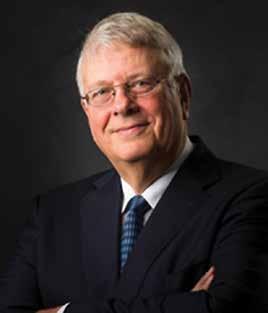
14 Headnotes l Dallas Bar Association January 2023
Navigating a Congressional Investigation Focus Criminal Law/Government Law Catastrophic Investment losses in your Account? Recover what you’re owed. Unsuitable Investments Securities Fraud Fraud Broker Negligence Crypto Currency Claims Margin Account Losses Free Initial Consultation Connect on LinkedIn www.linkedin.com/in/henrysimpson 214.726.6037 D Magazine Best Lawyer in Dallas 2021 Henry Simpson The Simpson Law Firm, PC 1700 PACIFIC AVENUE, SUITE 4400, DALLAS, TX 75201 It was so great seeing our members back at the Arts District Mansion for the
Holiday Party in December—especially Santa! Thank you to DBA
stepped in for Jolly Old St. Nick. We hope you had a happy holiday and wish you a Happy New Year! Happy Holidays!
DBA’s Family
member Al Ellis who
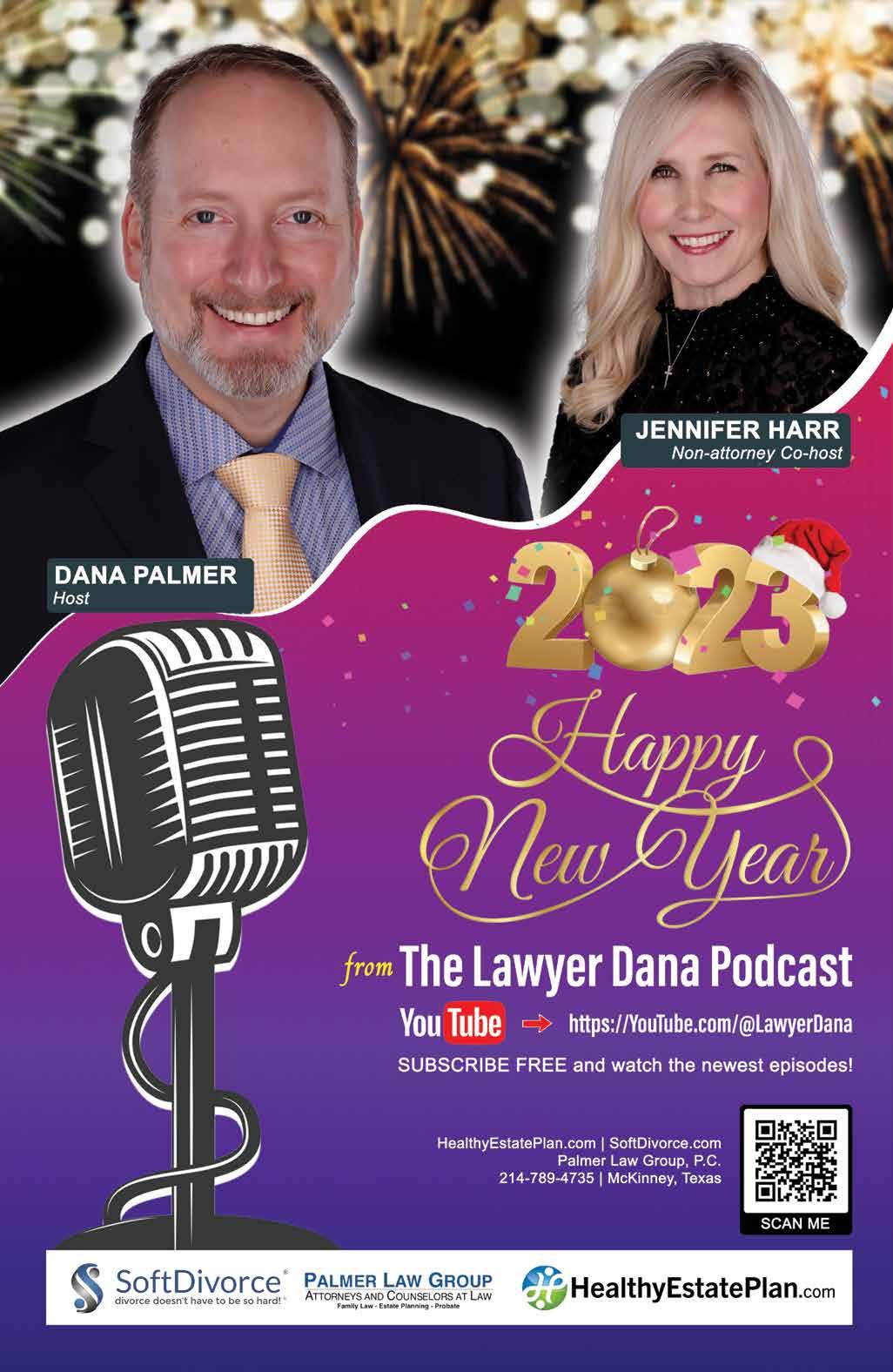
January 2023 Dallas Bar Association l Headnotes 15
Enoch Kever PLLC
Faegre Drinker
Hon. King Fifer
Gary Fowler
Paul R. Genender
The Gratitude Fund at The Dallas Foundation
Greenberg Traurig, LLP
Kastl Law, P.C.
Kilpatrick Townsend
Mike and Barbara Lynn Philanthropic Fund of the Dallas Jewish Community Foundation
McGuire, Craddock & Strother, P.C.
Mike McKool
McKool Smith
O’Melveny & Myers LLP
Annette & Jeff Patterson
Probate, Trusts & Estates Section
Real Property Law Section
Sheppard, Mullin, Richter & Hampton LLP
John Solana
Peter S. Vogel
Wiley
SILVER ($2,750)
Kim J. Askew
Roger Bivans & Sarah Donch
Adam & Aubrey Connatser
Nina Cortell
SILVER ($2,750)
Diane Pearlstone Couchman
Sally Crawford Dallas Women Lawyers Association Foundation
Sara J. Evans Fish & Richardson P.C.
Fragomen, Del Rey, Bernsen & Loewy, LLP
Hon. Royal Furgeson & Marcellene Malouf
Hon. Mark Greenberg
Kathleen E. Irvin
Ronald Kirk
Michael A. Krywucki
Lacy & John Lawrence
Linebarger Goggan Blair & Sampson LLP
Lynn Pinker Hurst & Schwegmann LLP
Mergers and Acquisitions Section
MoneyGram International
Morgan, Lewis & Bockius LLP
Norton Rose Fulbright US LLP
Reed Smith
John Salazar
Securities Section
Spencer Fane LLP
Robert L. Tobey
Tort & Insurance Practice Section
Trial Skills Section
Julie Ungerman
Robb L. Voyles
Winstead PC
Zelle LLP
BRONZE ($1,500)
Anonymous Association of Corporate Counsel, Dallas-Fort Worth
Carrington, Coleman, Sloman & Blumenthal, L.L.P.
Jonathan & Katie Childers
Bill Cobb & Stacy Brainin
Katie & David Coligado
Timothy S. Durst
BRONZE ($1,500)
Jenny Ecklund & Elizabeth Myers
Employee Benefits/Executive Compensation
Section
Beverly Goulet
Sara Harris Jack W. Hawkins
Cassandra Garcia Hernandez
J. Mark Hollingsworth
Ted Brizzolara & Kate Hopkins
Michael L. Jones Bill Katz
Kim and Dan Kelly Charitable Fund
Lawrence & Joan Kelly Kathryne M. Morris
Senior Justice Mary Murphy, in Honor of Jerry Alexander
Mike Myers
Ogletree Deakins
PepsiCo Plano Law Department
Phillips Murrah P.C.
The Phoenix Insurance
Will Russ
Science & Technology Law Section
Nate & Kathy St. Clair
Vaughn-Stalcup Donor Advised Fund

Sandra & Richard Stewart
Ross W. Stoddard, III, Attorney-Mediator
Joel & Terilyn Winful
SPONSORS ($1,000)
Eliot & Julie Adelson
Appellate Law Section
Ann S. Austin
Bank of America
Bankruptcy & Commercial Law Section
Mark W. Bayer
Deb & Scott Coldwell
Olesja L. Cormney
Joel Crouch
Dallas Asian American Bar Association
Kevin & Sharla Fuller
SPONSORS ($1,000)
Glast, Phillips & Murray, P.C. Sean Hamada
Intellectual Property Law Section
International Law Section
Kathleen M. Kearney, RN, JD
David C. Kent
Jennifer King
Liz
16 Headnotes l Dallas Bar Association January 2023
Dallas: The Equal Access to Justice Campaign is an annual fundraising drive benefiting the Dallas Volunteer Attorney Program. The Dallas Volunteer Attorney Program, or DVAP, is a free, civil legal aid program of the Dallas Bar Association and Legal Aid of NorthWest Texas. Through DVAP, over 1,200 volunteers donate their time and legal skills to help low-income people in Dallas resolve their legal problems. Those who have bravely served our country, innocent children, the elderly, and the disabled are
the many people DVAP helps every day. The support of our donors is more important now than ever. Over 800,000 people in Dallas County already qualify for DVAP’s help, while the number of people living in poverty continues to grow. Please join us in thanking our generous donors for their support of access to justice for all.
BRONZE ($1,500) SILVER ($2,750) Dear Citizens of
some of
Cheryl Camin Murray DBA President
William B. Mateja DBA President-Elect
Stephanie Culpepper Campaign Co-Chair
PRESIDENT’S COUNCIL ($30,500) Hartline Barger LLP CHAIRMAN’S COUNCIL ($25,500) Jerry & Sherri Alexander Kirkland & Ellis LLP Morrison Foerster Sidley Austin Foundation CHAIRMAN’S COUNCIL ($25,500) Toyota Motor North America/ Toyota Financial Services GOLD PATRON ($20,000) Capital One Margaret & Jaime Spellings
($15,500) Anonymous Foundation Gibson Dunn & Crutcher LLP Haynes and Boone Foundation Nexstar Charitable Foundation Vistra Corp.
($10,500) Akin Gump Strauss
& Feld LLP
Yuki Whitmire Campaign Co-Chair
DIAMOND
PLATINUM
Hauer
GOLD ($5,500) Aldous \ Walker LLP Kate & Art Anderson Family Charitable Fund ArentFox Schiff LLP Arnold & Porter Baker Botts L.L.P. Baker & Hostetler LLP Balch & Bingham Barnes & Thornburg LLP
Corporate Counsel Section Stephanie Gause Culpepper Dallas Association of Young Lawyers Foundation DLA Piper LLP
Lang-Miers George T. Lee III Matthew Lloyd Robert E. Luxen Robert Lyon & Associates, PC John H. Martin Cristy & David McAtee McCullough Mediation Retta Miller Rachel & Ross Morgan Cheryl Camin Murray Maureen Murry Erle Nye Patterson & Sheridan RegitzMauck Julie & Paul Rogers Robert F. Ruckman James & Hon. Carolyn Wright Sanders Schoenbrun Philanthropic Fund of Dallas Jewish Community Foundation Mary L. Scott Mark Shank Jason Shyung Hon. Craig Smith Phillip Umphres Deborah Verbil Yuki Whitmire Donors as of December 9, 2022 To donate to the campaign, visit www.dvapcampaign.org. To learn more about DVAP, visit www.dallasvolunteerattorneyprogram.org. For more information contact Michelle Alden at aldenm@lanwt.org or (214) 243-2234. PLATINUM ($10,500) AT&T Business Litigation Section Condon Tobin Sladek Thornton Nerenberg PLLC Covington & Burling LLP Ellen Farrell Holland & Knight LLP PLATINUM ($10,500) Jackson Lewis Foundation Jackson Walker LLP Latham & Watkins LLP Locke Lord LLP Munsch Hardt Kopf & Harr, P.C. Rosewood Foundation Vinson & Elkins LLP THANK YOU DALLAS COMMUNITY FOR GIVING BACK
The DBA is 150 Years Old!
This year marks the 150th anniversary of the Dallas Bar Association! What started in 1873 with a handful of lawyers occasionally meeting at the Oriental Hotel, has grown to more than 11,000 lawyers meeting almost daily at the Arts District Mansion and via Zoom.
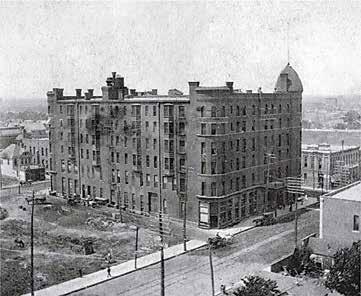

Each issue of Headnotes this year will include a portion of the DBA’s timeline, accompanied by an article and photos. In June, the DBA will publish a Commemorative Magazine with even more history, facts, and interesting details—did you know that the then-President of the DBA visited Lee Harvey Oswald in jail directly after the assassination of President John F. Kennedy? This is only one of the many interesting actions and events in the intriguing history of the association.
To kickstart our history lesson, we will take a look at beginnings of the DBA.
You may have heard that the history of the legal profession is as old as the city of Dallas itself, and that it was a lawyer who founded the town in the 1840s. The Dallas Bar Association began some 30 years later
in 1873 with John J. Good serving as the association’s first President. His term ended in 1875, as the practice during the early years was to serve a multi-year term. When the Bar began, there were around 40 lawyers in the city of Dallas, according to the 1870 census. And by 1875, the first directory
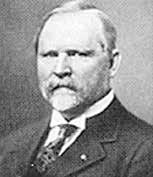
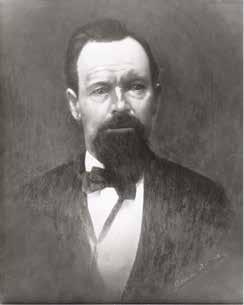
Looking Back on the DBA
DBA Founded by 40 lawyers; regular meetings were held. 1873
published listed 57 lawyers in a town with a population of 12,000.
On February 3, 1875, members of the Dallas Bar Association met to pass a resolution of condolence for the death of a fellow bar member, thus beginning the tradition of its Memorial Resolutions, that continues to the present day.
As the city of Dallas continued to grow, so did its legal community. By 1916, the association had grown to 100 members, and signed its first Charter for “support of a literary undertaking and maintenance of a library.”
Soon after, they had to take a brief hiatus due to the Spanish Flu shutting down the city. The 1918 influenza pandemic was the most severe pandemic the country had seen at that time. According to influenzaarchive. org, at least 9,000 people in Dallas contracted the disease, and 250 died, between September 24 and November 2, 1918. On October 10, 1918, the Mayor ordered a citywide closure that all Dallas theaters, playhouses, and all other place of public amusement were to be closed, though classes at schools were allowed to continue.
When the influenza pandemic ended,
and the DBA was once again up and running, the members of the association met in various locations in the courthouse, before returning to the Oriental Hotel in 1923, where they began the practice of luncheon meetings. After the Oriental Hotel was torn down, the DBA began meeting in the Adolphus Hotel and would continue to do so for many years.
In the mid-1920s, the DBA became more active and started a legal clinic for the City of Dallas and encouraged Southern Methodist University to start a law school. The DBA was such an advocate of the idea of forming a law school that it underwrote salaries for two full-time faculty members for two years.
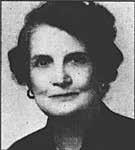
The DBA ended the year of 1926 with 428 members—a significant growth since its inception.
In its first 53 years, the Dallas Bar Association slowly began to form a working organization that would take hold in the city of Dallas and had already started making a difference in the city it called home. HN
This article cites information for various sources, including the book As Old as Dallas Itself by Darwin Payne.
The tradition of the DBA Memorial Resolutions began.
DBA signed its first Charter—by 100 members “for support of a literary undertaking and maintenance of a library.”
Meetings alternated between the 14th and 44th District Court rooms.
Helen Marion Viglini is the first woman to appear in the official minutes as a member of the DBA.
Meetings returned to the Oriental Hotel, and the practice of luncheon meetings began.
DBA started and supported a legal clinic for the City of Dallas.
DBA President Joseph E. Cockrell urges SMU to start a law school, and the DBA underwrote salaries for two full time faculty members for two years.
Meetings moved to the Adolphus Hotel.
DBA membership grows to 428, up from 127 in 1920. The timeline continues in each issue of Headnotes this year. Look for part two in the February issue.
January 2023 Dallas Bar Association l Headnotes 17
STAFF REPORT
1875
1916
1919
1920
1923
1924
1926
1925 DBA activity ceases as the Spanish Flu hits Dallas. 1918-1919
John J. Good
BY MARTIN MERRITT AND MAZIN SBAITI
The road to achieving a client’s goal sometimes winds near the jailhouse door. Clients may be surprised to find themselves criminally liable, depending on the nature of the offense, and lawyers their unwitting accomplices.
Obviously criminal conduct, such as murder or theft, is called a malum in se offense. Clients who engage in this type of conduct are rarely surprised by the criminal nature of their acts, and lawyers can easily identify these acts as criminal in nature, and avoid participation.
However, with respect to malum prohibitum crimes acts criminal by virtue of statute their criminal nature is not so apparent; in these cases, it is important for lawyers to be aware of crimes a client might accidentally wander into. That is because malum prohibitum crimes may not be intuitively wrong. For example, conduct that is permissible in one
industry can often be illegal—with striking consequences—if taken in another industry.
Lawyers must be wary of counselling clients in areas that may involve criminal conduct. For example, under 18 U.S.C. §2(a) “aiding and abetting,” the mere act of “counselling,” is the very thing the statute forbids—providing that anyone who “counsels” a person in the commission of a crime is punishable as a principal. Establishing a “conspiracy” under 18 U.S.C. §371 requires little more than a conversation, paired with one overt act taken by any party to the conversation.
As an example, consider, Michael Avenatti and Michael Cohen, two former lawyers imprisoned for different reasons while representing opposing parties to the same civil litigation. Cohen was convicted of violating election laws, while Avenatti was convicted of defrauding his client and of attempted extortion.
The Preamble to the Texas Disciplin-


ary Rules of Professional Conduct makes it clear that lawyers are “officer[s] of the legal system” and “guardians of the law,” with a “special responsibility for the quality of justice.” It is perhaps for this reason the Rules cite variations of the words “crime” and “fraud” more than 130 times.
Comment 7 to Rule 1.02, titled “Criminal, Fraudulent and Prohibited Transactions,” further explains: “There is a critical distinction between presenting an analysis of legal aspects of questionable conduct and recommending the means by which a crime or fraud might be committed with impunity the lawyer also must avoid furthering the client’s unlawful purpose, for example, by suggesting how it might be concealed. A lawyer may not continue assisting a client in conduct that the lawyer originally supposes is legally proper but then discovers is criminal or fraudulent. Withdrawal from the representation, therefore, may be required.”
Where lawyers should never intentionally help clients commit crimes, they do have a heightened duty to competently provide advice. If lawyers are recklessly unaware their advice will thrust a cli-


ent headlong into a crime, could they be guilty of aiding and abetting? The likely answer is “yes.” A lawyer should consider all potential crimes, especially the malum prohibitum ones, to avoid “aiding and abetting” by counselling a client to engage in criminal conduct. The disciplinary rules governing competent and diligent representation require such consideration.
Potential criminality may also depend on the legal practice or client industry area. Lawyers representing elected officials may encounter different criminal prohibitions than those representing business clients. Business lawyers, in turn, may consider what it means to “steal” trade secrets, and which cyber “wires” cannot be “tapped.” Family lawyers must know what it means to “cyberstalk” someone.
If ethical questions arise, the Texas Bar Ethics Hotline can help, available at (800) 532-3947 or on the state bar’s website under “Texas Ethics Resources.” HN
Martin Merritt is an attorney at Martin Merritt PLLC and can be reached at martin@martinmerritt.com. Mazin Sbaiti is an attorney at Sbaiti & Company PLLC and can be reached at mas@sbaitilaw.com.

TO REFER A
or simply serve as health law analyst. You stay in control of the case and keep the client.
Experienced. Over 30 years, in Texas and nationally, Martin Merritt litigates cases against the FBI, DEA, OIG, CMS, AUSA, TMB, Tex. OAG, Tex. Med. Bd, Pharm. Bd., TXDSHS, Civil False Claims Act Subpoenas and lawsuits, civil investigative demands, arbitration, criminal and other administrative actions. He has a proven track record applying this knowledge to win victories for business litigators.



18 Headnotes l Dallas Bar Association January 2023
Lawyers Can Avoid Implication
Client Criminal Activity Focus Criminal Law/Government Law MARTIN MERRITT Health Law and Healthcare Litigation “I highly recommend Martin As Co-Counsel in Healthcare Litigation Cases.” --Brad Jackson/ Commercial Litigator, Dallas • Healthcare Trials/Hearings Analysis of Illegal “kickback” contracts • Enforceability of 15.50 Non-Competes Insurance “Clawbacks” • FBI, OIG, CMS Investigations Medical License Revocations Martin Merritt Chair, DBA Health Law (2021) Ex. Dir. Texas Health Lawyers Association Martin@MartinMerritt.com Dir. (214) 952.1279
Merritt is your co-counsel in healthcare litigation cases. If one side has an experienced health lawyer in their firm and you do not, you can level the playing field by associating Martin Merritt as co-counsel. You keep the client. Hourly and flat monthly rates available. Martin can try the case, prepare and argue hearings,
How
in
Martin
(D Mag. Best 2018, 2020, 2022)
Join Us!
MLK
Wednesday, January 4 | 2:00 - 3:00 PM MCLE: 1.00 | Hosted on Zoom Speaker: Nicole Clark CEO and Co-Founder of Trellis Research Texas State Trial Court Research & Analytics Tips & Best Practices Topics will include: • Judge Analytics and Ruling History • Draft Stronger Motions, Faster • Case Valuation and Verdict Data Strategic Texas State Trial Court Research • Alerts - Stay Informed Sponsored by
Please
Dallas Bar Association Martin Luther King Jr. Luncheon Monday, January 16, 2023 Noon at the Arts District Mansion 2101 Ross Avenue, Dallas, TX
Justice Award to be presented to Judge W. Royal Furgeson
NEED
CASE? The DBA Lawyer Referral Service Can Help. Log on to www.dallasbar.org/lawyerreferralservice or call (214) 220-7444.



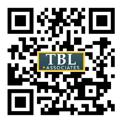



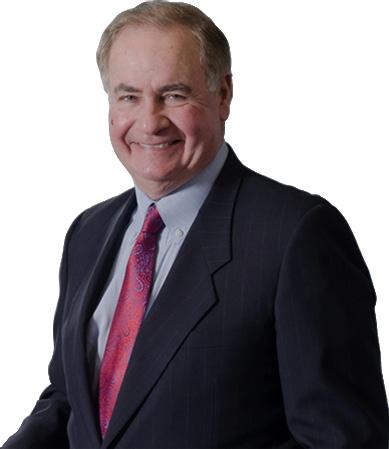
January 2023 Dallas Bar Association l Headnotes 19
How
BY NANCY MULDER
Attorneys who do not practice criminal law are typically at a loss when they get an after-hours phone call from their best client asking for help because they, or someone they care about, was arrested. Here is some basic information you need to know to appear knowledgeable to your client or whoever is on the phone.
If your client is arrested anywhere in Dallas County, he will go to the city jail in the town where he was arrested. Below is a complete list of all the municipal jails in Dallas County where individuals are housed immediately after arrest. It is old school, but calling the jail is the quickest way to find out if your client is there. An online search will not do any good because even if the city jail has a website listing inmates, your client will not be on it until he is arraigned.
Of course, if your client is arrested in the City of Dallas, he will go straight to the Dallas County jail, housed in the Lew Sterrett Justice Center. The exception is if he was arrested for public intoxication. Dallas has a separate “drunk tank” detention center south of Deep Ellum. If your client is there, he will typically be released in the morning after sleeping it off, with no arraignment since public intoxication is a Class C misdemeanor.
For all other criminal offenses, arrestees will wait anywhere from four to 24 hours to complete book-in and see a judge to get a bond set. The time varies based on whether or not the jail is really busy, like on St. Patrick’s Day or New Year’s Eve, when the wait can be really long. All of the jails conduct arraignments seven days a week.
Arrested
Some larger city jails opt to use the Dallas County video teleconference program, where magistrate judges from the Dallas County jail remotely arraign inmates and set bonds. This is usually very efficient, but if the connection fails, the city judges step in to arraign the inmates; but usually only after their morning municipal court docket is finished. Once the bond is set, you can post it in person or through a bonding company, and your client will be released.
If your client does not post bond from the municipal jail, after about 48 hours he will be moved to the larger Dallas County jail. Lew Sterrett is better equipped to take care of inmates because it can separate rival combatants, co-defendants, and triage anyone with mental health issues or chronic illness. With a capacity of 7,100 inmates, its average daily population is around 6,500 inmates.
Once your client is moved to the Dallas County jail, he must go through the book-in and magistration process there, which can last another four to10 hours. There is a presumption that if he has not yet posted the bond, he may be indigent and need a court-appointed attorney. The bond will remain the same, but if he qualifies, an attorney will be appointed to represent him.
If your client was arrested for a felony criminal offense and the bond is set higher than he can afford, once he is moved to the Dallas County jail, an attorney can file a writ of habeas corpus with a criminal district court judge and a bail hearing will be set within two days.
Keep in mind that no matter what the charge is, after your client or his loved one has bonded out, you probably should
in Dallas County
not discuss the arrest with him. Contact a criminal attorney!
Below is a list of local jails and their contact information. This list uses “judge, video, or both” when describing how inmates are arraigned.
• Lew Sterrett Justice Center/ Dallas County Jail (Dallas Sheriff Dept). (214) 761-9026; Select 2, then 3; judge
• City of Dallas Detention Center (the drunk tank) (214) 670-0109; this number is also for the Dallas Municipal Courts, but detainee information is available 24/7. Select 2 for the detention center, then 3; The Marshall on site will tell you who is there.
• Balch Springs Jail (972) 557-6000; Select “dispatch”; video
• Carrollton City Jail—includes arrests from Addison and Coppell (972) 466-3335, video, but prefer to take arrestees straight to Dallas County jail www.cityofcarrollton/inmates
• Desoto “Tri-City” Jail–includes arrests from Cedar Hill, Duncanville, Lancaster, Glen Heights, and Ovilla (469) 658-3081; video
• Farmers Branch City Jail (972) 919-9327 or (972) 919-9328; judge (after municipal docket @11am-3pm)
• Garland City Jail (972) 485-4890; judge

• Grand Prairie—has parts in Dallas, Tarrant, Ellis, and Johnson Counties (972) 237-8951; both, depends on where the offense occurred
• Highland Park Holding Facility (214) 521-5000; Select “dispatch”; judge
• Hutchins City Jail/Police Dept. (972) 225-2224; Select “dispatch”; video
• Irving City Jail (972) 721-3608 or (972) 721-2625 www.cityofirving.org/906/irving-city-jail; In-Custody List link
• Mesquite City Jail (972) 216-6243; video www.jaildata.com/prison/mesquite-txpolice-jail
• Richardson City Jail (972) 744-4820; Judge, @11am
• Rowlett City Jail (972) 412-6252; Judge, @8am-12pm; www.ci.rowlett.tx.us
• University Park City Jail (214) 987-5364; Select “dispatch”; judge
• Wilmer City Jail/Police Dept. (972) 441-6565; judge
• Collin County Jail (972) 547-5200
Nancy Mulder is currently Judge of County Criminal Court 4 and is the Judge-Elect for Criminal District Court 6. She can be reached at nancy.mulder@dallascounty.org
DVAP’s Finest
JAHA THOMAS
Jaha Thomas is a sole practitioner.
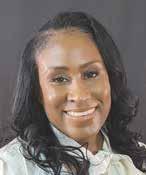
1. How did you first get involved in pro bono? The initial reason that I got involved in pro bono was that it was a requirement for a group that I am a member of, the Texas Opportunity & Justice Incubator (TOJI). However, during the last six months, my reasoning has become personal, focused, and more purposeful. I realized that so many people have had to live with injustice because they did not have access to justice. I recognized early on that justice cannot be served one-sided.
2. Describe your most compelling pro bono case. My most compelling pro bono case happens to have been my very first one. I represented a citizen who was down on her luck. She was facing eviction because she caught Covid twice, her employer did not provide sick days and required employees to quarantine. She did everything she could to pay her rent but since her job did not provide sick pay and did not allow her to go back to work, there was not anything that she could do. In the end, my client received an abatement of 60 days, which was just enough time for her to get a new job and move to a different apartment. The joy and gratitude in her voice helped me understand DVAP’s mantra “billable hours for the soul.”
3. Why do you do pro bono? Mostly, I recognize that justice should not be for “just us,” those that have financial access, but justice is literally, completely, and unequivocally for all, always.
4. What impact has pro bono service had on your career?
Pro bono has given my private practice, Essence Law, a breath of life. All of my clients are referrals from people I served in a pro bono capacity.
5. What is the most unexpected benefit you have received from doing pro bono? The most unexpected benefit I received from doing pro bono was the feeling of gratification. That feeling gives me the superpower to pass kindness, empathy, and understanding forward. The secondary benefit that I received from doing pro bono is the opportunity to learn and practice a myriad of areas of law with accessible mentor attorneys. DVAP is amazing resource for the community and I am proud to serve.

20 Headnotes l Dallas Bar Association January 2023
to Find Your
Client
Pro Bono: It’s Like Billable Hours for Your Soul. To volunteer or make a donation, call 214/748-1234, x2243.
Focus Criminal Law/Government Law
BY
Other than “How do I get out of jail?” the most common questions criminal defense attorneys face often relate to police conduct at the time of arrest.
• Can they force me to give a breath/ blood test?
• Can they make me give them my phone password?
• Can they force me to use my biometric login (i.e., face or fingerprint information)?
These and similar questions arise in state violations and complex federal criminal cases alike.
Blood and Breath
In Texas, the police power to compel discovery lies in the “implied consent” rule. Texas Transportation Code §724.011 states that if you are lawfully arrested by an officer who has probable cause to believe you have been driving while intoxicated, you automatically consent to give one or more specimens to measure your blood alcohol content (BAC). Once arrested, a refusal to voluntarily submit to a breathalyzer or blood test may result in additional penalties such as a suspension of your driver’s license for no less than 180 days.
However, this power is not limitless. To what extent does an individual have an expectation of privacy in the exercise of control over and testing over blood already drawn? This was the question posed in State v. Martinez, PD-0878-17 (March 20, 2019). There, a defendant was taken to a hospital for treatment following a traffic accident and blood was drawn by hospital personnel for medical purposes, but was not tested for
blood-alcohol content by the hospital. The State later acquired and tested the blood without a warrant. Martinez filed a motion to suppress, arguing that the blood was obtained in violation of a laundry list of constitutional and statutory rights, including the protections against unreasonable searches and seizures under the Fourth Amendment and the Texas Constitution. The motion was granted. The Appellate court affirmed the decision, finding that an individual has an expectation of privacy in blood that is drawn for medical purposes.
Martinez filled the gap left by previous caselaw about the extent to which privacy interests in an individual’s blood are protected by the Fourth Amendment. The Fourth Amendment is not implicated if the State seeks to obtain the results of a blood test performed by hospital personnel for medical diagnosis purposes. On the other hand, a warrant is required to satisfy the Fourth Amendment if the State seeks to draw and test an individual’s blood. If the State desires to test the blood-alcohol content of blood previously drawn by hospital personnel for medical diagnosis, the Fourth Amendment requires a warrant.
Biometrics
It is well-settled that the Fifth Amendment right against self-incrimination protects citizens from being forced to reveal their phone’s passcode to police. Courts are mixed, however, on whether forcibly using biometric data to unlock a phone is a testimonial act that deserves the same protections. In In re Search of a Residence in Oakland, Case No. 19-mj-70053-KAW-1 (JD) (N.D. Cal. Dec. 10, 2019), the government applied for a warrant to compel any individual pres-
ent at a residence to utilize biometric features to unlock digital devices found at the residence. The U.S. Magistrate Judge ruled that suspects could not be forced to use biometric features to unlock digital devices because using such a feature would be testimonial for purposes of the Fifth Amendment’s protection against self-incrimination.
Courts have previously found passcodes cannot be compelled because the communication of a passcode is a testimonial act that expresses the contents of a person’s mind. The Oakland court found that unlocking a device using biometrics “far exceeds” compelling non-testimonial acts such as furnishing a blood sample or submitting to fingerprinting. Unlocking a device concedes the suspect had possession and control of the device and authenticates ownership or access to the device, and may provide access to sensitive personal information, such as medical and financial records.
United States v. Barrera, 415 F. Supp. 3d 832 (N.D. Ill. 2019) held the opposite. The court there found that a fingerprint is more akin to a physical key than to a passcode combination that resides in one’s mind, and

that the physical act of unlocking the phone with a finger does not amount to providing the court directly with incriminating evidence. Rather, unlocking the phone merely provides access to a potential source of evidence. The court found that any implicit inference that can be drawn from a biometric unlocking procedure is not of testimonial significance, meaning that compelling a suspect to unlock a phone using biometrics does not violate one’s Fourth or Fifth Amendment rights and is therefore constitutional.
Conclusion
Courts and attorneys have an obligation to safeguard constitutional rights and cannot permit those rights to fall victim to advances in technology. Attention to the specific facts surrounding discovery collected at the time of arrest is crucial in ensuring the preservation of rights in situations that can be as complex as they are common.
Tom Mills, of Tom Mills Criminal Law, PLLC, can be reached at tmills@ tmcriminallaw.com. Krystal LaPorte, Attorney at Law, can be reached at krystallaportelaw@gmail.com.
Education Law Study
January 2023 Dallas Bar Association l Headnotes 21
Can They Do That? Focus Criminal Law/Government Law FEDERAL & STATE CRIMINAL DEFENSE | FEDERAL & STATE CIVIL TRIAL MATTERS Knox Fitzpatrick ✯ Jim Jacks ✯ Bob Smith ✯ Mike Uhl ✯ Ritch Roberts 500 NORTH AKARD STREET, ROSS TOWER, SUITE 2150 DALLAS, TEXAS 75201-6654 | 214-237-0900 *Independent Law Offices
TOM MILLS AND KRYSTAL LAPORTE
Does your practice entail school or education law? Would you be interested in participating in a DBA Education Law Section to connect with others in this practice area and where CLEs will be presented on education law topics? If so, email Sandy Lauro (sandra@slauro.com) who is assisting the DBA to create an Education Law Section.
Group
BY KENDALL CASTELLO AND MESSINA MADSON
Polygraphs are not admissible in Texas criminal courts. Under the Texas Rules of Evidence, courts have found that polygraphs lack sufficient scientific reliability. So why should an accused person still take one? As any good criminal practitioner knows, the polygraph is an important tool at the right time and place.

The Irony of Inadmissibility


Every jurisdiction in Texas uses polygraphs. Police departments use them as part of criminal investigations. Probation departments use them to determine if a person is following probation conditions and to investigate a person’s criminal history (especially in cases related to sex offenses). Even some district attorney’s offices use them to investigate charges and meet protocols for conviction integrity analysis (such as innocence claims). Most criminal justice practitioners trust our own polygraphs and distrust the other side’s polygraphs—sometimes for very good reasons. So, if polygraphs are
inadmissible and not always trusted, why bother with them?
The Usefulness of Polygraphs
Polygraphs can be useful in two primary ways: 1) they can be effective in non-trial settings, and 2) they can produce more just results by providing law enforcement and prosecutors an additional perspective.
There are multiple opportunities to use a polygraph result before trial. Over the years, we have used polygraphs to keep police officers from filing a case, to compel a district attorney’s office to reject a case, or to convince a grand jury to no-bill a case. The polygraph itself is never dispositive, but it can be used very effectively in the right setting.
In today’s world many allegations are based on one person’s word. We see this regularly in family violence, sexual assault, and child abuse allegations. Usually with these one-person allegations, the police file the charge and the district attorney’s office pursues prosecution. And there are good reasons for this. As a society, we want the criminal justice system to take such alle-
gations seriously. Sadly, we know we have failed victims far too often in the past. But to criminally charge someone based on another’s word puts immense power behind an uncorroborated and unproven accusation, and not all accusations are true. A polygraph gives a black-and-white result that expands law enforcement’s capacity to see the other side.
When and How to Polygraph
If you choose to have a client take a polygraph, the details matter. Here are a few important tips:
Always hire a professional polygrapher, and never take a polygraph given by a law enforcement officer. As with most professions, you do not hire an electrician to do your plumbing and you do not use a generalist to do a specialist’s job. Law enforcement officers investigate crimes and use polygraphy as a tool to that end. You want an expert who lives and breathes polygraphy and knows the latest research and techniques.
Choose a polygrapher who is well known in your jurisdiction. As mentioned above, police departments, probation departments, and district attorney’s offices also use polygraphers. If you use a polygrapher who is known to the other side, your result will carry more weight.


Hire the polygrapher for your client and make sure everyone knows that this polygraph is protected by the work product and attorney/client privileges. This underscores another reason why a polygraph administered by law enforcement is a bad idea. Poly-
graphs are not a perfect tool (and clients are not perfect either). Sometimes a report comes back inconclusive or negative for a client—this is especially true when using a highly reputable polygrapher. So make sure you control who sees the polygraph result.
As the criminal attorney, have the polygraph result delivered only to you. A criminal attorney is not required to turn over anything in discovery. This is not always true for results in the possession of a client or civil attorney.
If your client must take a polygraph administered by law enforcement, give preference to a federal practitioner over a state or local law enforcement polygrapher. Without getting into the weeds too much, federal law enforcement practitioners are generally more up to date than local and state practitioners. For more explanation, find a comfortable chair and ask your favorite private polygrapher to explain the difference between directed lie and probable lie tests.
Looking to the Future
The science behind polygraphy is improving all the time. Many jurisdictions now allow polygraph results in certain situations, and federal courts are more open to polygraphs than Texas state courts. Change is slow, but we are seeing progress. HN
kendall@mccrimlaw.com or messina@ mccrimlaw.com, respectively.
22 Headnotes l Dallas Bar Association January 2023
Kendall Castello and Messina Madson are partners at M|C Criminal Law and have practiced criminal law for nearly 20 years. You can contact them at
Polygraphs in Texas Criminal Law: Not Admissible
Focus Criminal Law/Government Law Did You Know? Members can gain exposure through speaking and writing opportunities or DBA members can be licensed in ANY state. Not just Texas. Over 600 CLE programs annually plus 15 free hours of On-Demand CLE for DBA members. DBA members can join the LRS panel for only $100 per year – Less than $9 per month! When broken down monthly, a DBA membership is only $9 - $20 per month. (dependent on license date) Members can develop their careers and leadership skills through specially focused programs. Best lunch buffet downtown. Bring your colleagues! Coaching and mentoring is offered to attorneys launching their own practices. Committee serving as a DBA or Section officer. Watch for more “DBA Facts” in DBAOnline every Thursday. Your 2023 dues statements have arrived and we ask that you consider renewing as a Sustaining Member ($535). More than 200,000 members and guests use our building each year and your contribution at the Sustaining Member level will help us continue the essential upkeep needed to preserve our beautiful building—as the premiere bar headquarters in the nation. Thank you for your support. HELP PRESERVE OUR HEADQUARTERS: BECOME A SUSTAINING MEMBER All Sustaining Members will be prominently recognized in Headnotes and at our Annual Meeting. Wednesday Workshop Wednesday, January 18, Noon, Hybrid | MCLE 1.00 “When Someone You Know Gets Arrested” Speaker: Kevin B. Ross Presented by the CLE Committee
but Useful
BY JOSHUA SKINNER & JAMES DONOVAN
You expect that the statute of limitations, the two-year limit for example, can result in dismissal of your tort claim. But did you know that the Texas Tort Claims Act contains a six-month notice of claim requirement, that can also cause dismissal of your claim?
From the moment of injury, a clock starts ticking. In addition to the traditional statutes of limitations, when suing a municipality or other governmental entity, plaintiffs bear the additional burden of proving that a municipality had notice of the claim asserted against it within six months (a shorter or longer time may be specified by local charter or ordinance).
Notice is an essential statutory prerequisite. Without notice, the court does not have subject matter jurisdiction over the municipality due to governmental immunity. The purpose of the notice requirement is to “enable governmental units to gather information necessary to guard against unfounded claims, settle claims, and prepare for trial.”
Notice can be either formal or actual. Formal notice is, as one would expect, a written notice to the municipality reasonably describing the incident, the damage or injury claimed, and the time and place of the incident.
Alternatively, when a plaintiff fails to provide formal notice, the claimant “must live with the uncertainty that is inherent in the actual-notice exception.” To prove actual notice, a plaintiff must illustrate that a municipality had actual, subjective knowledge of the claim asserted against it.
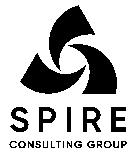

Challenges to notice can be raised in a plea to the jurisdiction, which can be quickly set for a hearing. Also, in resolving this juris-

dictional issue, the court is not required to look solely at the pleadings but may also consider evidence necessary to resolve the specific jurisdictional issues raised.


“Should Have Known” Is Not Enough
When evaluating the relevant jurisdictional evidence, a municipality’s knowledge that an accident occurred is not, by itself, enough to support a finding of actual notice. Actual notice requires more: it requires “actual, subjective awareness.” Potential or constructive notice is not enough.
Actual notice does not exist solely because a municipality investigated, or should have investigated, an incident. Whether a municipality’s investigation supports a finding of actual notice depends on the specific facts of the investigation. The relevant standard is not whether the municipality should have made the connection between the injury and responsibility alleged, but whether that connection was actually made.
Not All City Employees
Are “The City”
Evidence of alleged communications of injury to agents or representatives of a municipality must be to a proper agent. For example, in City of Houston v. Villafuerte, the plaintiff told a City of Houston EMT of their alleged accident injuries, and the EMT knew that a city vehicle caused the accident, but the First Court of Appeals held that the plaintiff’s statements were not actual notice of injury because the EMT was not an agent “charged with a duty to investigate and report to the City.”
Notice Of Injury Is Not Necessarily Notice of Claim
Additionally, actual notice of injury will not necessarily support all claims, e.g., notice of property damage may not, by itself, support notice of personal injury. Actual notice requires sufficient information to identify the loss ultimately alleged.


Courts have narrowly interpreted the meaning of “claim” and “the loss ultimately alleged.” The governmental unit must have actual notice “that the claimant has received some injury, or that the claimant’s property has been damaged.” The disjunctive “or” has been crucial. For example, numerous Texas courts have held that notice of property damage alone does not support notice of personal injury and vice versa. If a plaintiff ultimately claims both property damage and personal injury, the governmental entity must have had independent actual notice for each.
Practice Points
The good news is that the perils and
headaches of actual notice can be avoided simply by providing formal notice of the claim within six months (or other timeframe set by local charter or ordinance). Many municipalities have an online form that requests the relevant information and notifies the city of the claim.

If, however, you have missed the sixmonth window, start looking for evidence that the governmental entity had actual, subjective knowledge of the specific claims you are alleging. Keep in mind that the notice of property damage and notice of personal injury are severable. Did the municipality have sufficient independent notice of each claim? Did the city conduct more than a routine investigation into the accident?
Although notice can be a jurisdictional hurdle, it can be easily avoided with a little know-how. HN
Josh Skinner and James Donovan are Assistant City Attorney’s for the City of Arlington. They can be reached at joshua. skinner@arlingtontx.gov and james.donovan@arlingtontx. gov, respectively.

January 2023 Dallas Bar Association l Headnotes 23
Beware: Actual Notice
Tort Claims
Focus Criminal Law/Government Law The DBA Construction Law Section thanks its 2022 holiday party sponsors: You are Invited to the Judicial Investitures of: Hon. Maricela Breedlove and Hon. Nancy Kennedy Fifth District Court of Appeals Friday, January 27, 3:30 p.m. at the Arts District Mansion
Attorney
and the Texas
Act
BY PAUL SAPUTO AND NICHOLAS TOUFEXIS
The Michael Morton Act (MMA), which took effect in 2014, requires State prosecutors to produce all non-privileged evidence in the State’s possession as soon as practicable after a timely request from a defendant. Since the enactment of the MMA, discovery disputes in Texas state criminal cases have largely focused on what evidence the State has in its possession, not whether the evidence should be turned over. But the MMA is silent on remedies when the State fails to turn over evidence. Judges have typically granted continuances to resolve issues related to undisclosed discovery, yet such a judicial remedy is unavailable in instances of spoliation when evidence has already been destroyed and therefore, cannot be turned over. And matters of spoliation are treated much differently in state crim-


inal proceedings than in civil litigation.
Spoliation is the intentional destruction or alteration of evidence to deprive another litigant of its use. For spoliation to occur, there must be a duty to preserve the evidence. In Texas civil litigation, this duty arises only when a party knows or reasonably should know that there is a substantial chance that a claim will be filed and that evidence in its possession or control will be material and relevant to that claim. If evidence is unavailable due to the actions of a party that could be considered misconduct, a court has discretion to impose an appropriate remedy to restore the parties to a rough approximation of their positions as if all evidence had been available. The most common remedy is an adverse presumption instruction. The adverse presumption is that a party who has deliberately destroyed evidence at a time when the party knows or
should have known it will be evidence in a controversy is presumed to have done so because the evidence was unfavorable to its case. Courts can also impose “death penalty” sanctions in egregious cases.

Courts are much more forgiving to the government when evidence goes missing in criminal cases. Because the MMA requires the State to produce all non-privileged evidence as soon as practicable after a timely request from a defendant, there is a clear duty for the State to preserve evidence in criminal cases. But when the State has failed to turn over evidence and claims that the evidence has been destroyed, case law offers no remedies unless the defendant can show “bad faith” on the part of the police or that the destroyed or missing evidence was “materially exculpatory.”
The well-known Brady rule provides that a federal due process violation occurs if the State fails to disclose “material exculpatory” evidence, regardless of whether the State acted in bad faith. This requires proof that the sought-after evidence be both material and favorable to the defendant. Ironically, it is difficult to prove just how material and favorable evidence is without access to it. Thus, the Brady rule is typically applied only to cases in which exculpatory evidence remains in the government’s possession, and is not often useful in the spoliation context.



In cases where evidence is apparently missing or destroyed and the evidence cannot be proven to be exculpatory, courts apply the Youngblood rule, which cynically places the burden on a criminal defendant to show “bad faith” on the part of the police in order to get relief. The
Youngblood rule applies to all missing evidence that could be “potentially useful” regardless of its exculpatory value.



Texas courts have held that the MMA does not impose a greater duty of preservation on the State than what Youngblood requires. This means the State may destroy potentially favorable evidence as long as it does not do so in bad faith.
Unlike in civil litigation, there is no presumption in criminal proceedings that deliberately-destroyed evidence is presumptively unfavorable to the state’s case. The “bad faith” requirement under the Youngblood rule instead requires the defendant to show positive proof of the State agent’s mental awareness that evidence was destroyed at a time when its potential for exoneration was apparent. This unfortunately means, when potentially exculpatory evidence is permanently lost, courts are faced with the treacherous task of divining the import of materials whose contents are unknown and, very often, disputed.
By imposing a requirement on a defendant to show bad faith on the part of the government actor who destroyed the evidence, the Youngblood rule limits the obligation of the government to preserve all evidence. But this also creates a loophole where the State can destroy evidence and suffer no consequences, effectively shifting the discovery burden to the defendant who would then have to prove the mental state of the person who destroyed the evidence to get relief—certainly no small feat. HN
24 Headnotes l Dallas Bar Association January 2023
Paul Saputo and Nicholas Toufexis are partners at Saputo Defense PLLC. They can be reached at paul@saputo.law and nick@saputo.law, respectively.
Criminal
Focus Criminal Law/Government
A Mentoring Partnership Between the Dallas Association of Young Lawyers and the Dallas Bar Association STEER is a mentorship program dedicated to helping young lawyers jumpstart their legal career by providing the opportunity to cultivate relationships and obtain substantive and practical information through five lunchtime meetings between February and June. Each of these mentoring hours will allow young lawyers facetime with more seasoned attorneys in the DFW legal community and will provide an opportunity to discuss challenges and issues unique to the practice of law. Young lawyers (0-3 years) and recent graduates should apply Small groups are designed to help guide young attorneys based on practice area, goals and other criteria Young lawyers who successfully complete the program will be acknowledged through a public list Apply at www.DAYL.com/mentoring Young lawyers: Start 2023 with a commitment to yourself by taking advantage of these mentoring moments! *STEER is formerlyknown asthe Dallas BarAssociationTransitionto LawProgram. RENEW YOUR MEMBERSHIP DUES Don’t risk being dropped from the DBA membership! Renew TODAY in order to continue receiving all your member benefits including FREE online CLE programs and Committee Communications Look for an email reminder with links to renew your Dues online or go online now and click on My DBA to log in to check your status and renew your Membership! Thank you for your support of the Dallas Bar Association! NEW CODE FOR FREE ONLINE CLE 15 Hours of FREE Online CLE per year for DBA Members Use code 2023FREECLE to access your free CLE in 2023. Go to onlinecle.dallasbar.org to get started! Is it your birthday month? Need CLE? Need ethics? Find what you need in the DBA Online CLE Catalog Anytime - Anywhere! onlinecle.dallasbar.org
Spoliation in
Law
Law
BY PAM LISTON
In the criminal law world, a critical crossroad exists where the rights of arrested persons with mental illness (MI), intellectual and development disability (IDD), and substance use disorder (SUD) meet outdated custodial practices. Texas laws requiring diversion and evaluation of such persons instead of their arrest have been in place for years, but they have been little-known or underused in many parts of the state. In the Dallas-Fort Worth metroplex, local police departments and municipal courts carry an especially large responsibility to implement these laws due to the high number of city jails and proximity to an ample number of service providers. Law enforcement and municipal courts play separate but key roles in connecting people to appropriate services in a timely manner.
Article 16.23 of the Texas Code of Criminal Procedure requires law enforcement to make good faith efforts to divert misdemeanants to service providers, instead of arresting them, when their behavior results from MI or SUD. Similarly, if an arrested person exhibits signs of MI or IDD, Article 16.22 of the Texas Code of Criminal Procedure instructs magistrates to order a mental health report from a mental health expert prior to setting bond. If the arrested person is found to have an MI or IDD, the magistrate must issue a personal bond with appropriate conditions unless the defendant is charged with

or has previously been convicted of a violent offense listed in Article 17.032 of the Texas Code of Criminal Procedure. Magistrates can rely on recommendations from mental health experts in setting appropriate bond conditions that will best serve the arrested person and protect society. Bond conditions can include inpatient treatment, outpatient treatment, and other conditions.
Where governmental systems are not in place to meet the legal requirements for providing appropriate process to persons with MI, IDD, and SUD, local courts and local governing bodies should collaborate to find acceptable solutions that facilitate compliance with the law. Local governments experiencing conflict in this regard can find educational resources for their communities through the Texas Municipal Courts Education Center (TMCEC) and its C3 initiative to educate “Councils, Courts, and Cities” regarding the role of the municipal court in city government. Access to C3 initiative publications and materials can be found at www.tmcec.com/cities.
In addition, there is a statewide effort to reduce the time it takes to identify, evaluate, and process arrested persons suspected of having MI, IDD, or SUD. It is known that mental health can deteriorate rapidly when persons are held in jail without appropriate medications and treatment. The Texas Judicial Commission on Mental Health (JCMH) has prepared an “Eliminate the Wait” toolkit for legal practitioners and per-


DBA/DAYL Moms in Law
sons with authority within the criminal justice system. The toolkit provides practices, tips, and charts designed to equip peace officers, judges, and mental health providers in the criminal justice context to act as expediently as possible. A factor in this equation is that municipal jails operated by local governments are not subject to the minimum standards for jail operations in Texas.
The JCMH and the Texas Department of Health and Human Services (HHS) also offer Sequential Intercept Mapping (SIM) training free to local governments to facilitate knowledge of the law and access to resources in their geographic areas. Stakeholders from police departments, courts, service providers, and members of the community are invited to participate in these SIM trainings. Many counties and cities have taken advantage of
this free training to benefit the people and families in their jurisdictions. To learn more or to request SIM training, go to texasjcmh. gov/technical-assistance/mapping-workshop. The landscape surrounding MI, IDD, and SUD in the criminal justice context is evolving. The State of Texas is thankfully making great strides as a leader in best practices. This evolution requires the commitment of those in local government authority to transition old routines into new horizons. We in Texas and Dallas County are up to the challenge. Materials, publications, and services are readily available. HN
pam@txmunicipallaw.com.




January 2023 Dallas Bar Association l Headnotes 25
Pam Liston, Commissioner on the Texas Judicial Commission on Mental Health, Senior Attorney at the law firm of Messer, Fort & McDonald, PLLC, and a Texas Magistrate can be reached at
Diversion and Detection
Defendant
Focus Criminal Law/Government Law Texas Lawyers’ Assistance Program TLAP provides confidential help for lawyers, law students, and judges who have problems with substance abuse and/or mental health issues. In addition, TLAP offers many helpful resources, including: Live Ethics CLE presentations TLAP Newsletter Request of specific educational materials 1-1, group telephone calls on topics Friday noon AA telephone meeting 1-800-393-0640, code 6767456 Find out more at www.texasbar.com. The Dallas-Fort Worth Lexus Dealers Ticket to Drive Raffle Winner receives a 2023 Lexus NX 250* Raffle tickets are $100 each - or 6 tickets for $500. Proceeds benefit the Dallas Volunteer Attorney Program, which provides legal services to the less fortunate in our community. No more than 1,500 tickets will be sold. Runner-up receives: A choice of America’s Cup Yacht Sailing in San Francisco, a Biltmore Estate Trip, or a Cabo San Lucas Ocean View Getaway. *Picture shown is not exact winning vehicle Purchase raffle tickets online at www.dallasbar.org/dvapraffle Drawing will be held at the DBA Inaugural celebration on February 11, 2023 The winner need not be present to win. The winner is responsible for all taxes, title and licensing. Prize is non-transferable. No cash option is available. N E W L E G A C Y C L U B F O R E M E R I T U S M E M B E R S All Emeritus members (licensed 50+ years) are invited to make an optional $100 gift to support the DBA and its programs In addition to a free Emeritus membership, Legacy Club members receive special recognition in Headnotes, on the DBA website, and at the Annual Meeting E m e r i t u s M e m b e r s s h o u l d r e c e i v e t h e i r 2 0 2 3 r e n e w a l s t a t e m e n t s b y m a i l a r o u n d O c t o b e r 1
Being a working mom can be challenging. Being a working lawyer mom can be a different ballgame with its own unique challenges. Moms in Law is a no pressure, no commitment, informal, fun, support group for lawyer moms. Join Moms in Law for lunch Friday, January 20t, noon, at Le Troisieme in Preston Center To RSVP, email Kelly Bryan at kelly.bryan01@gmail.com.
to join the Moms in Law email listserv.
of
Mental State
Email cpleatherberry@gmail.com
What Technology is the Best Fit for Your Law Firm?
BY JOHN LEHMAN
As with most professional service providers, legal professionals have a tendency to fall into the “If it ain’t broke…” camp. It is a big part of the reason why many law firms have historically been slow to adopt new technology. But over the past two years, attorneys have been put in a position where choosing not to implement new legal tech isn’t really an option anymore. In this article, we will share essential steps to take and questions to ask when evaluating technology for attorneys, and discuss what all the best legal tech solutions have in common.
Selecting the Right Type of Law Office Technology
Technology is an integral part of every attorney’s day-to-day—from trial lawyers preparing for a case to transactional attorneys drafting and organizing documents. Accordingly, choosing which law office technology
to use in your practice is a huge decision.
Here is just a snapshot of some of the different types of legal tech you can choose from:
• Accounting
• Appointment Booking
• Billing / Accounts Receivable (AR)
• Calendaring / Docketing
• Case Management
• Client Portals
• Client Intake / Client Relationship Management (CRM)
• Document and Records Management
• Document Automation
• e-Discovery
• Legal Research
• Payment Processing
• Practice Management
• Time and Expense Tracking
Of course, not every law office needs every kind of software. Factors such as the business’ size, the area of law attorneys in the firm practice, and the number and types of clients they serve will all play a major role in trimming down that list initially.
Narrowing Down Your Legal Tech
Software Options
Once you have a general idea of the type(s) of solution(s) you want to potentially implement, your next step is to answer a few questions about the practice itself as well as your objectives and expectations in regards to the technology:
• What are your firm’s overall strategy, mission, and business objectives?
• Where does the business stand today and where do you want it to be?
• Has the practice undergone any recent changes that could affect your technology needs?
• How does your current technology further the firm’s goals?
• In what ways does your current technology fall short?
Prioritizing the Essentials
After you have identified which type(s) of software the practice needs, you need to establish which aspects of law firm technology are the most important to your business.
It goes without saying that data security and the ability to maintain confidentiality are non-negotiables. But beyond those, you will have to decide which features and functionalities are absolutely essential and which are simply nice-tohaves.
Below are examples of some attributes to think about when comparing solutions:
• Can be up and running quickly
• Has an intuitive, easy-to-navigate interface
• Clearly demonstrates value to the firm
• Is accessible both in-office and remotely
• Costs less to maintain than to replace
• Offers a native mobile app
• Provided by a vendor who offers ongoing customer support


Boxes Only the Best Legal Tech Solutions Can Check
When it comes to the basic purpose of the solution, you can expect each provider to offer a similar level of functionality. However, not all law office technology is created equal.
For example, if you are comparing payment solutions, you should aim only to partner with a provider that can check off every item in the list below.
• Has a legal-focused foundation and understands the distinct financial requirements of legal professionals like you.
• Is vetted and recommended by your state bar association and the ABA.
• Deducts processing fees only from your operating account and in one lump sum at the end of the month, instead of on every transaction.
• Features direct integrations with the other law firm software solutions you rely on to run your business.
• Allows you to securely accept eCheck payments in addition to credit and debit cards online and in person.
• Enables you to offer clients legal fee financing options so clients can pay over time but you get your full fee upfront.
• Guarantees third-party debits will never be allowed from your trust account under any circumstances.
• Includes scheduled/recurring payment tools at no additional cost.

• Uses Level 1 PCI DSS certified technology and offers a no-charge PCI compliance program for your business.
• Offers proactive, comprehensive chargeback assistance.

• Requires no set-up or cancellation fees or long-term contracts. HN
Hon. Royal Furgeson to Receive 2023 MLK Justice Award
Access to justice is hard to come by. There is less than one full-time legal services attorney for every 7,100 Dallas citizens living in poverty. That means that if you filled AT&T Stadium to its maximum capacity, you’d have 11 attorneys to service them. And if each client received a single 30-minute session, it would take those attorneys nearly five months of round-the-clock work, with no breaks, just to meet with everyone.
That’s where DVAP comes in. DVAP provides access to justice by recruiting, training, and supporting over 1,200 volunteer attorneys each year who take meaningful time from their “day jobs” to provide pro bono legal aid to low-income people in Dallas County.


Your support of DVAP will assist low-income people with eviction issues, family law matters, estate planning, bankruptc filings, veterans benefits, and more.
“Judge Furgeson is a legal legend whose life experience exemplifies community service. Whether as a federal judge, president of the El Paso Bar Association, or founding dean of a law school, he looks for ways to give back to the community and has had such a great impact on others,” said DBA President Cheryl Murray Judge Furgeson is honored and humbled that the DBA selected him as the 2023 MLK Justice Award. This award is another much-deserved recognition for Judge Furgeson in a long list of past wellearned honors, including the Jurist of the Year Award from the Texas Chapter of
Award from the Dallas Bar Foundation. One of Judge Furgeson’s favorite Dr. King quotes is “the arc of the moral universe is long, but it bends toward justice.” Reflecting on those words, Judge Furgeson challenges us to always fight for access to justice as it is “crucial for the health of our society.” Judge Furgeson now focuses his time on mediations and arbitrations as co-founder of Furgeson Malouf Law, PLLC, a practice he shares with his wife, Marcellene Malouf. Please join the DBA in celebrating and honoring Judge Furgeson at the 2023 Martin Luther King, Jr. Justice Award Luncheon at noon on Monday, January 16, 2023, at the Arts District Mansion. For specific details, visit www.dallasbar.org and watch for special
26 Headnotes l Dallas Bar Association January 2023
CONTINUED FROM PAGE 1
John Lehman is a Senior Content Writer for AffiniPay
Find
TOGETHER, WE CAN MAKE A DIFFERENCE. we have your ct information. NG OUR EMAILS? Log in to your "My DBA Page," and click ‘Update Profile’ or email membership@dallasbar.org. WWW.DALLASBAR.ORG
out more at dallasvolunteerattorneyprogram.org
BY YOVANNA VARGAS
In cases involving issues of mental competency, an immigration judge has the discretion to implement appropriate safeguards to protect a noncitizen’s rights to a fair and full hearing. Under immigration law, noncitizens who have been convicted of certain crimes that are considered “particular serious crimes” are barred from asylum and withholding of removal. Under the precedent of Matter of G-G-S, 26 I&N Dec. 339 (BIA 2014), a person’s mental health was not a factor to be considered in determining whether a crime rose to the level of a particular serious crime. This precedent had undermined Board precedents on the “totality of circumstances” or “all reliable information” analysis and had prevented the adjudicators from considering what may otherwise be relevant, reliable, and probative mental health evidence in negative decisions that carried life-threatening consequences.

Matter of B-Z-R
The Attorney General’s recent decision in Matter of B-Z-R, 28 I&N Dec 563 (A.G. 2022) overruled Matter of G-G-S, In this case, the respondent, a native and citizen of Mexico had been convicted in 2017 of burglary and was sentenced to four years of imprisonment. The respondent was placed in removal proceedings and he sought withholding of removal to Mexico on the grounds of both persecution due to his sexual orientation, and also based on his mental health condition. The immigration judge denied the respondent’s application for withholding





of removal because the judge determined, without considering the respondent’s mental health condition, that respondent’s conviction was for a particular serious crime, citing Matter of G-G-S- The Board affirmed the immigration judge’s decision. The Attorney General referred Matter of B-Z-R to himself for review and subsequently determined that Matter of G-G-S must be overruled.
A non-citizen who has been convicted of a particular serious crime is barred from two forms of protection from persecution: asylum and withholding of removal. For purpose of asylum, an aggravated felony is a per se particular serious crime resulting an automatic disqualification from asylum. For purposes of withholding of removal, if the non-citizen was convicted of an aggravated felony and sentenced to an aggregate term of imprisonment of at least five years, the conviction will result in a particular serious crime 241(B)(3) (B)(iv). For all other offenses, adjudicators must decide on a case-by-case basis whether a conviction is for a particular serious crime.
Because the particular serious crime bar usually involves factual finding about the circumstances surrounding a crime, the AG held that adjudicators may apply a comprehensive “totality of circumstances” standard, including any evidence of mental health illness in case-by case determinations--for example, where a victim of domestic violence with PTSD disorder has been convicted of assaulting his or her abuser. Accordingly, “[i]n judging the seriousness of a crime, [adjudicators] look to such factors as the nature of the conviction, the circumstances and underlying facts of the conviction, the type of sentence imposed, and whether the
type and circumstances of the crime indicate that respondent is a danger to the community—which is the essential key in a particular serious crime determination. The question for the adjudicators is not whether the non-citizen’s mental health conditions support a case for asylum and/or withholding of removal. The issue is whether the mental health history suggests that, notwithstanding a serious criminal conviction, the noncitizen does not present a danger to the community. Conversely, if the noncitizen poses a danger to the community, notwithstanding his mental health condition, the particular serious crime bar to asylum and withholding of removal may apply. Dangerousness is the key element on this determination.
This, under B-Z-R, mental health evidence in this context should not categorically be disregarded, as G-G-S had previously mandated.
Conclusion
Representing noncitizens with mental illness presents challenges for removal defense practitioners. Matter of B-Z-R represents an important decision toward the protection of rights to non-citizens with mental illness seeking the humanitarian relief of asylum or withholding of removal. If a noncitizen has a mental health disorder, his crime itself might not indicate that he is dangerous. This determination must be made on a case-by-case basis. This is a discretionary determination and adjudicators may consider mental health evidence in determining whether a person’s conduct might pose a danger to the community and consequently, whether a crime is a particular serious crime that would bar asylum or withholding of removal. HN

Yovanna Vargas is the owner of the Law Office of Yovanna Vargas, PC. She can be reached at yovanna@yvargaslaw.com.








January 2023 Dallas Bar Association l Headnotes 27
Considering a Noncitizen’s Mental Health in a Crime Analysis Focus Criminal Law/Government Law DBA TRIAL SKILLS SECTION PRESENTS Masters of Trial ARTS DISTRICT MANSION Fri, Jan. 20 2101 Ross Avenue, Dallas, TX DallasBar.org REGISTER HERE Elite trial lawyers in Dallas will demonstrate how to try a civil case before a jury. 9:00 AM - 5:00 PM MCLE: 7.00 DBA TRIAL SKILLS SECTION PRESENTS Masters of Trial ARTS DISTRICT MANSION Wed, Nov. 2 2101 Ross Avenue, Dallas, TX DallasBar.org REGISTER HERE Elite trial lawyers in Dallas will demonstrate how to try a civil case before a jury. 9:00 AM - 5:00 PM MCLE: 7.00 Crain Brogdon LLP Sommerman, McCaffity, Quesada & Geisler, L.L.P. Stafford Moore, PLLC Barnes & Thornburg LLP Hon. Irma Ramirez U.S. District Court Northern District, Magistrate Judge Kacy Miller CourtroomLogic Consulting MEMBER FEE: $50 DBA TRIAL SKILLS SECTION PRESENTS Masters of Trial ARTS DISTRICT MANSION Wed, Nov. 2 2101 Ross Avenue, Dallas, TX DallasBar.org REGISTER HERE Elite trial lawyers in Dallas will demonstrate how to try a civil case before a jury. 9:00 AM - 5:00 PM MCLE: 7.00 DBA TRIAL SKILLS SECTION PRESENTS Masters of Trial ARTS DISTRICT MANSION Wed, Nov. 2 2101 Ross Avenue, Dallas, TX DallasBar.org REGISTER HERE Elite trial lawyers in Dallas will demonstrate how to try a civil case before a jury. 9:00 AM - 5:00 PM MCLE: 7.00 Quentin Brogdon Crain Brogdon LLP Laura Geisler Sommerman, McCaffity, Quesada & Geisler, L.L.P. Paul Stafford Stafford Moore, PLLC Victor Vital Barnes & Thornburg LLP Hon. Irma Ramirez U.S. District Court Northern District, Magistrate Judge Kacy Miller CourtroomLogic Consulting MEMBER FEE: $50 DBA TRIAL SKILLS SECTION PRESENTS Masters of Trial ARTS DISTRICT MANSION Wed, Nov. 2 2101 Ross Avenue, Dallas, TX DallasBar.org REGISTER HERE Elite trial lawyers in Dallas will demonstrate how to try a civil case before a jury. 9:00 AM - 5:00 PM MCLE: 7.00 DBA TRIAL SKILLS SECTION PRESENTS Masters of Trial ARTS DISTRICT MANSION Wed, Nov. 2 2101 Ross Avenue, Dallas, TX DallasBar.org REGISTER HERE Elite trial lawyers in Dallas will demonstrate how to try a civil case before a jury. 9:00 AM - 5:00 PM MCLE: 7.00 Quentin Brogdon Crain Brogdon LLP Laura Geisler Sommerman, McCaffity, Quesada & Geisler, L.L.P. Paul Stafford Stafford Moore, PLLC Victor Vital Barnes & Thornburg LLP Hon. Irma Ramirez U.S. District Court Northern District, Magistrate Judge Kacy Miller CourtroomLogic Consulting MEMBER FEE: $50 DBA TRIAL SKILLS SECTION PRESENTS Masters of Trial ARTS DISTRICT MANSION Wed, Nov. 2 2101 Ross Avenue, Dallas, TX DallasBar.org REGISTER HERE Elite trial lawyers in Dallas will demonstrate how to try a civil
jury.
PM MCLE: 7.00 DBA TRIAL SKILLS SECTION PRESENTS Masters of Trial ARTS DISTRICT MANSION Wed, Nov. 2 2101 Ross Avenue, Dallas, TX DallasBar.org REGISTER HERE Elite
will
PM MCLE:
Quentin Brogdon Crain Brogdon LLP Laura Geisler Sommerman, McCaffity, Quesada & Geisler, L.L.P. Paul Stafford Stafford Moore, PLLC Victor Vital Barnes & Thornburg LLP Hon. Irma Ramirez U.S. District Court Northern District, Magistrate Judge Kacy Miller CourtroomLogic Consulting MEMBER FEE: $50 Register at DallasBar.org Classifi Ads availab Onlin O f f i c e S p a c e , P o s i t i o P o s i t i o n s A v a i l a b l e S e r v i c e s w w w d a l l a s b a r o r g C o n t a c t J u d i S m a l l i n g j s m a l l i n g @ d a l l a s b a r . o r g 2 1 4 - 2 2 0 - 7 4 5 2 Let's Keep it Social. Follow us! Facebook Instagram LinkedIn Twitter Find out what's going on at #DallasBarAssoc
case before a
9:00 AM - 5:00
trial lawyers in Dallas
demonstrate how to try a civil case before a jury. 9:00 AM - 5:00
7.00
Cheryl Camin Murray 113th President of the Dallas Bar Association
In its 150th year, our Association is immensely blessed to have your integrity, creativity, and intellect leading us forward.
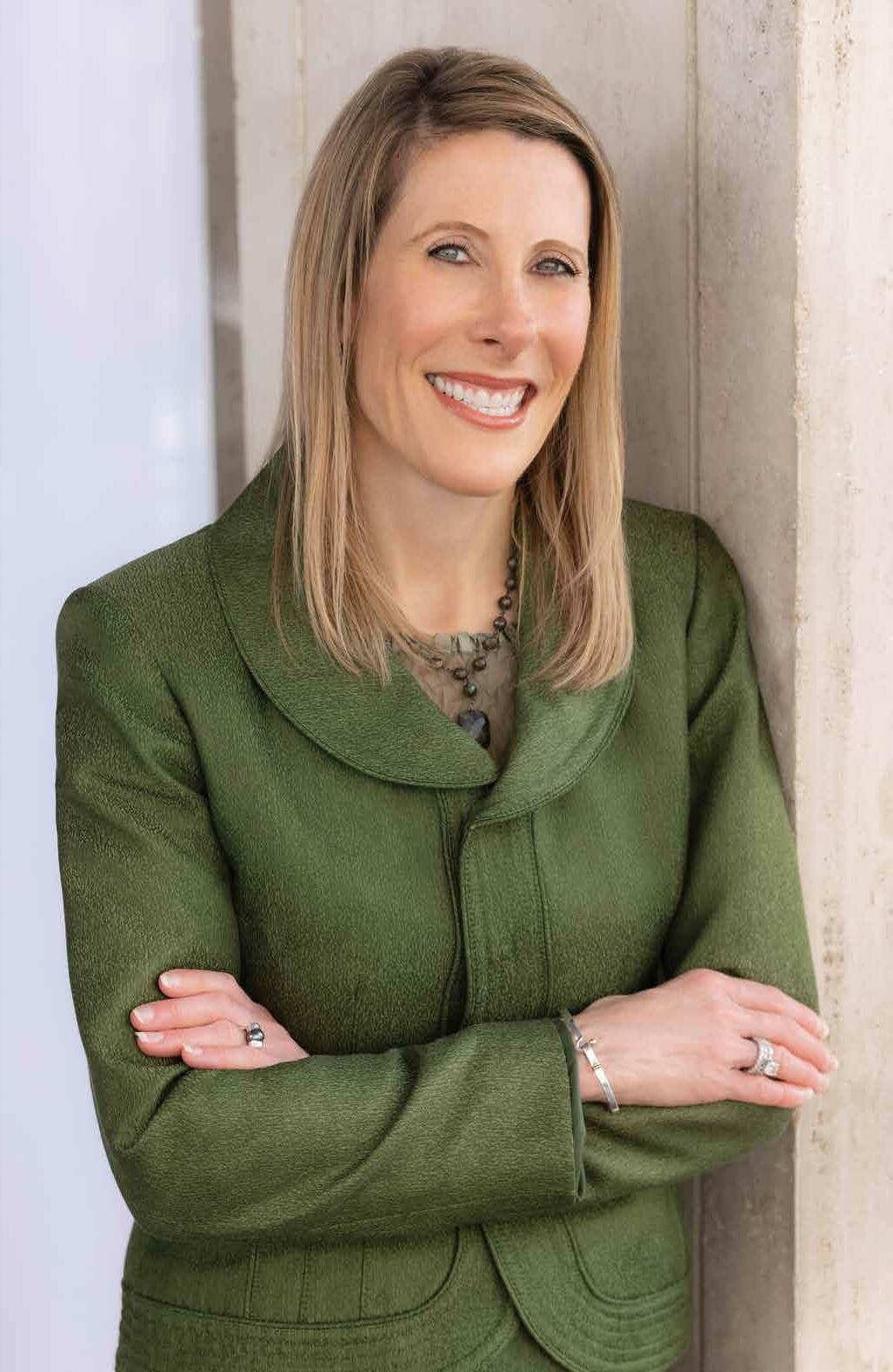
28 Headnotes l Dallas Bar Association January 2023
Congratulations Cheryl




 BY ASHLEY JONES WRIGHT
BY ASHLEY JONES WRIGHT









































































































































